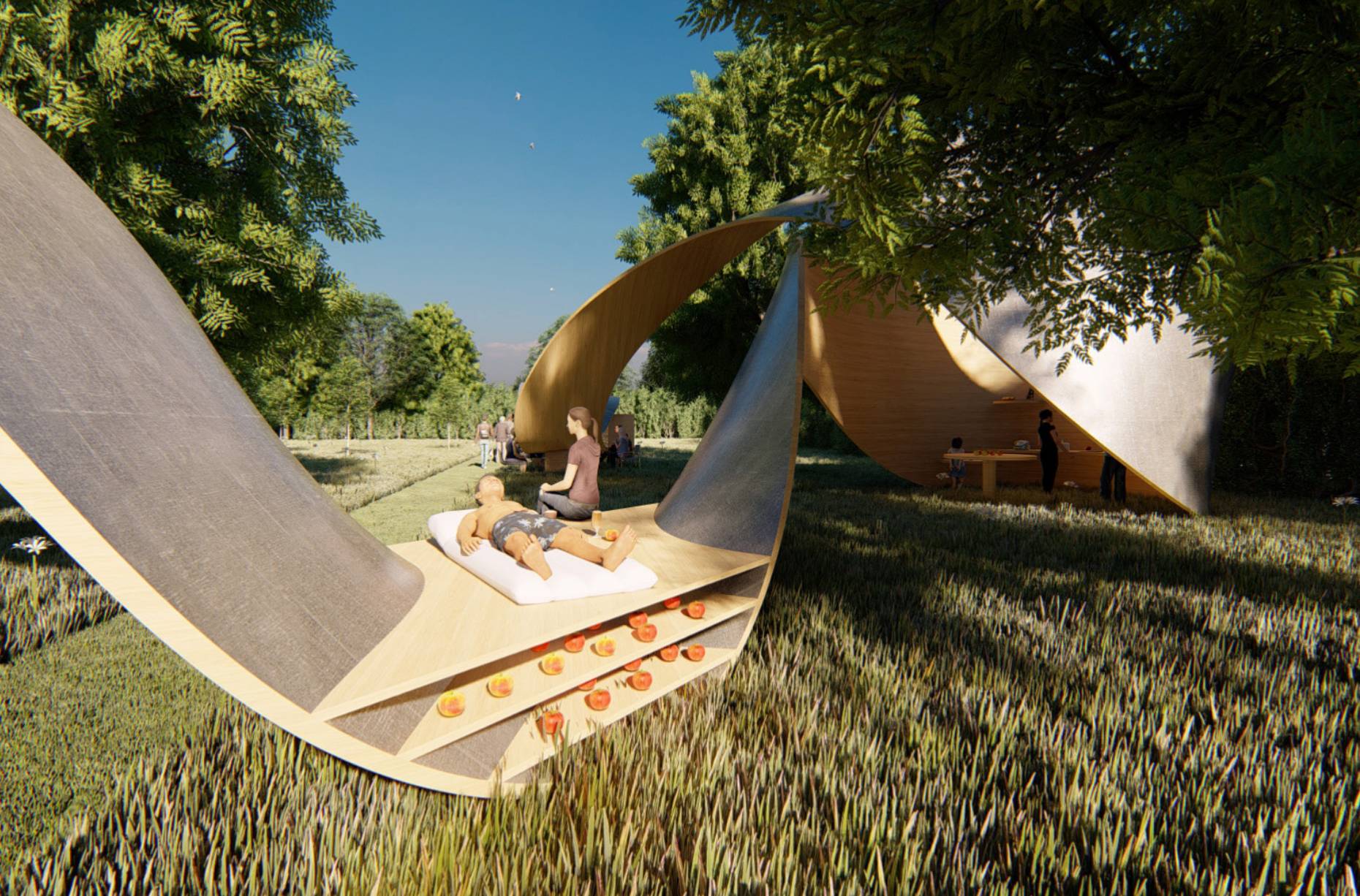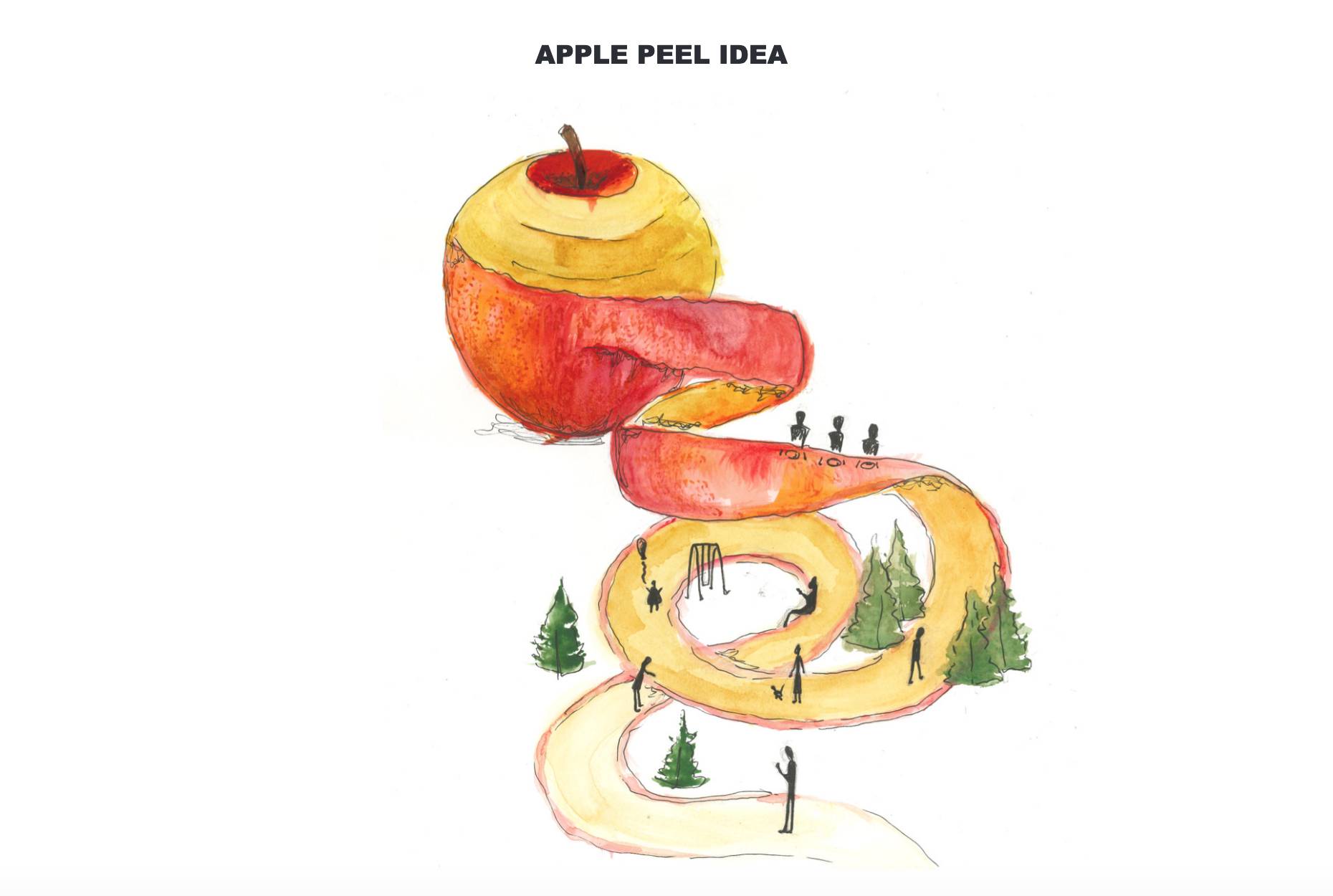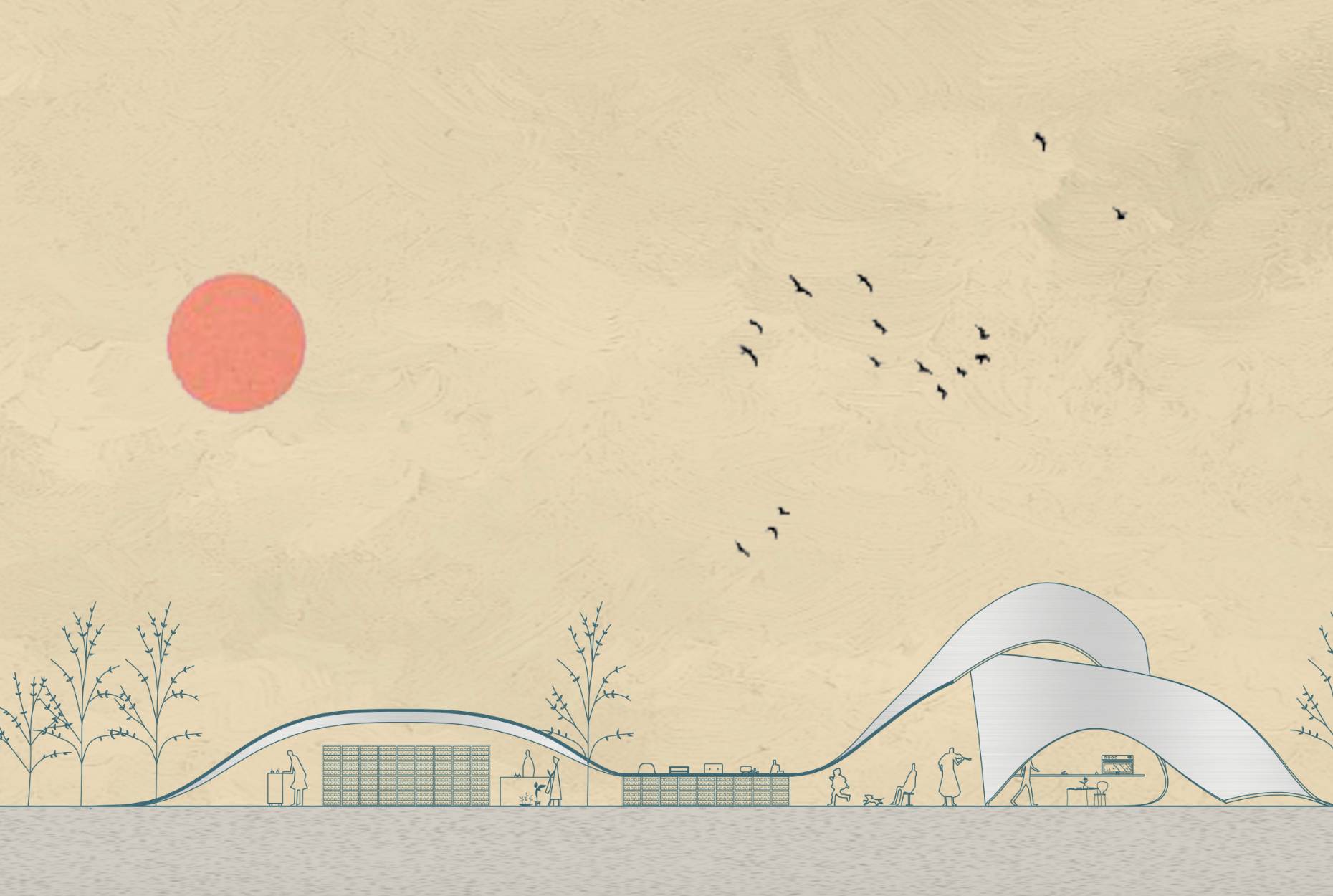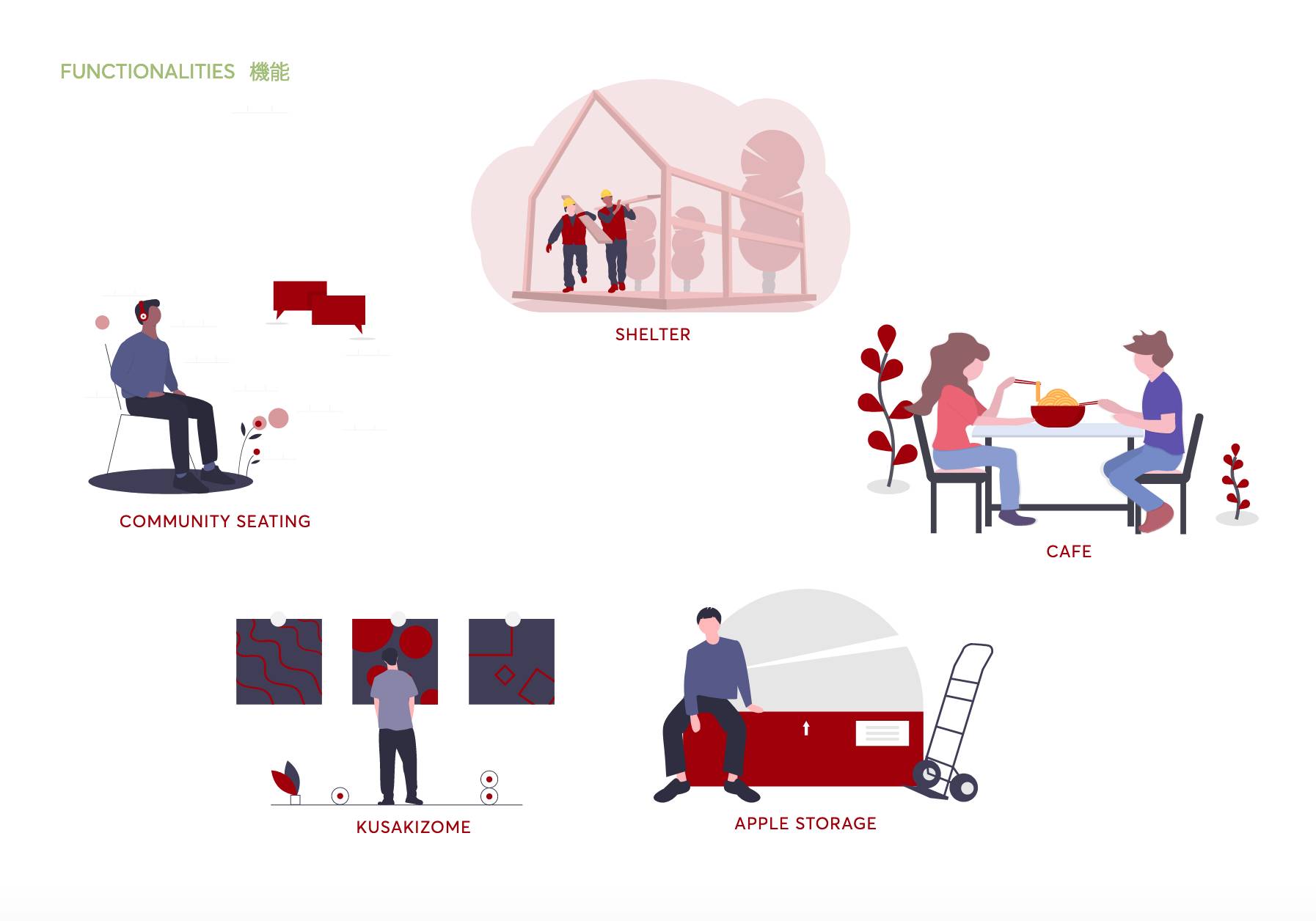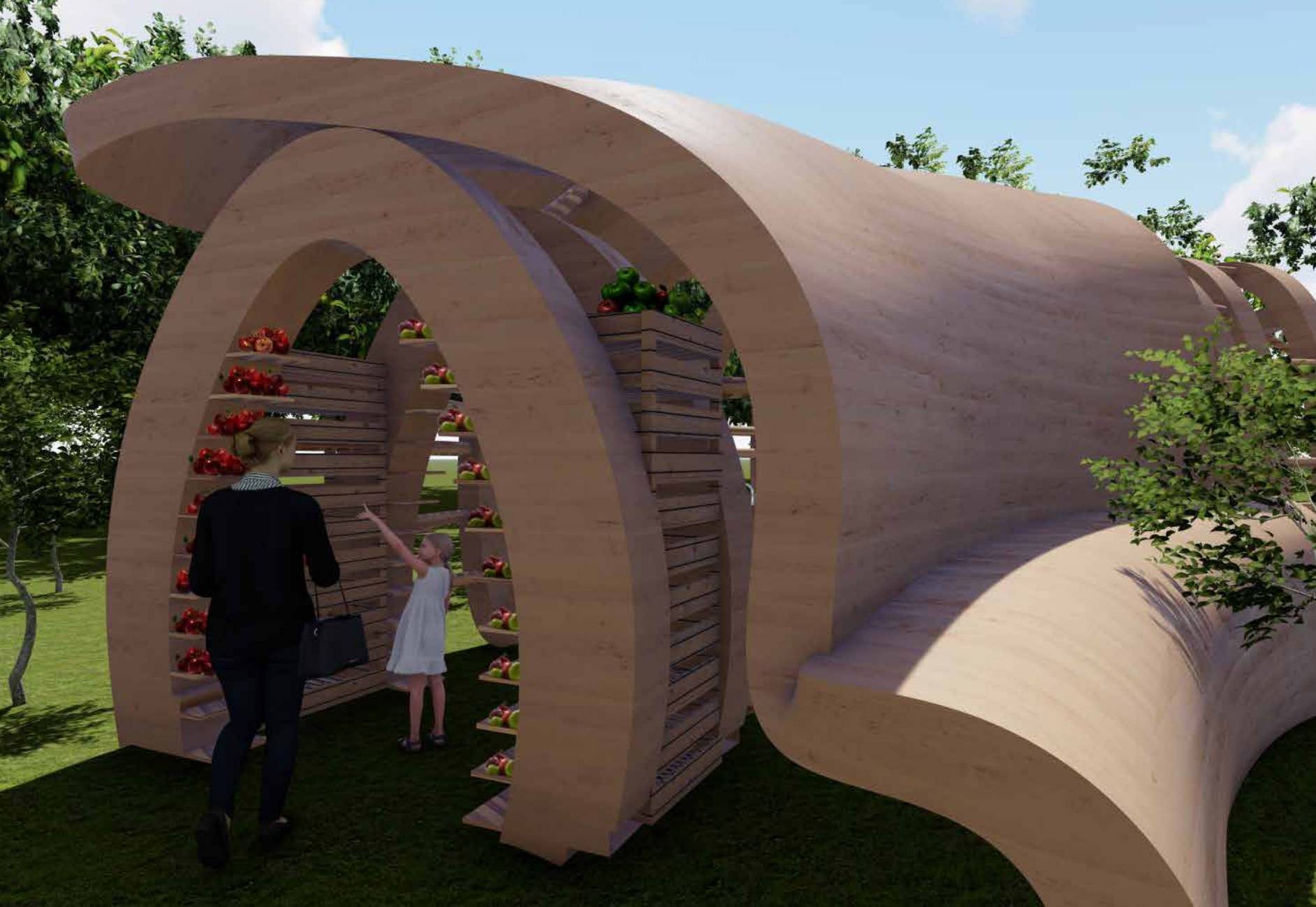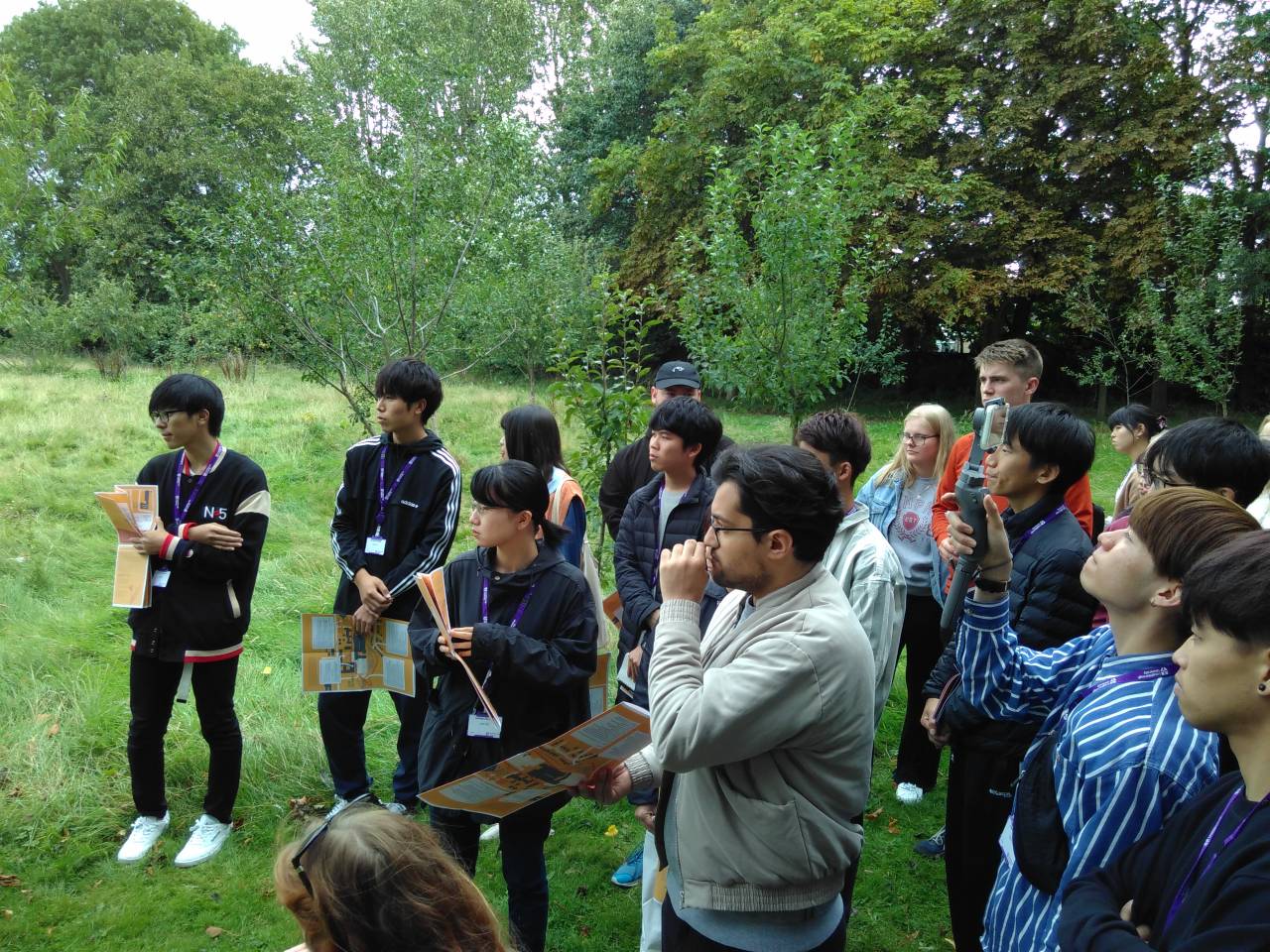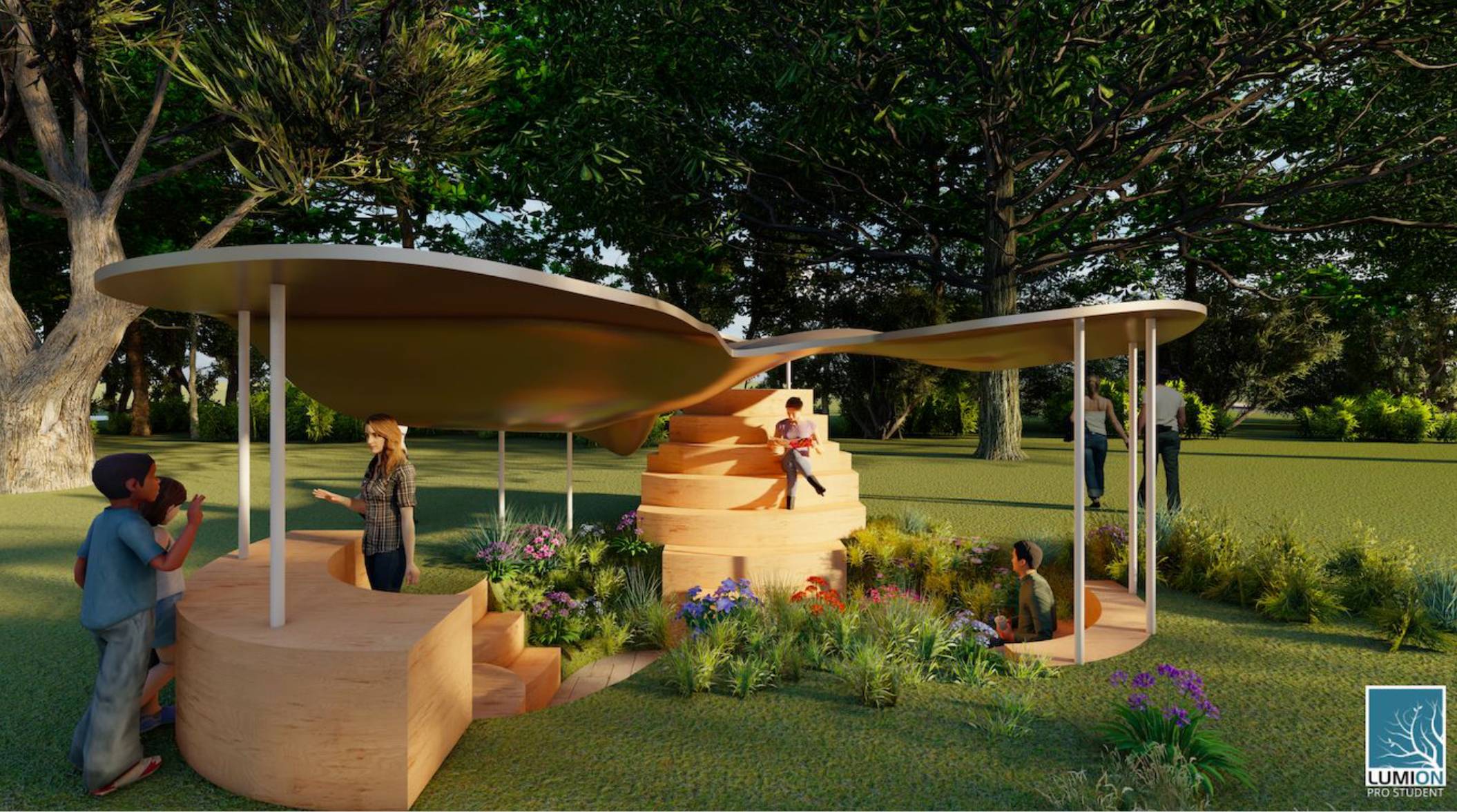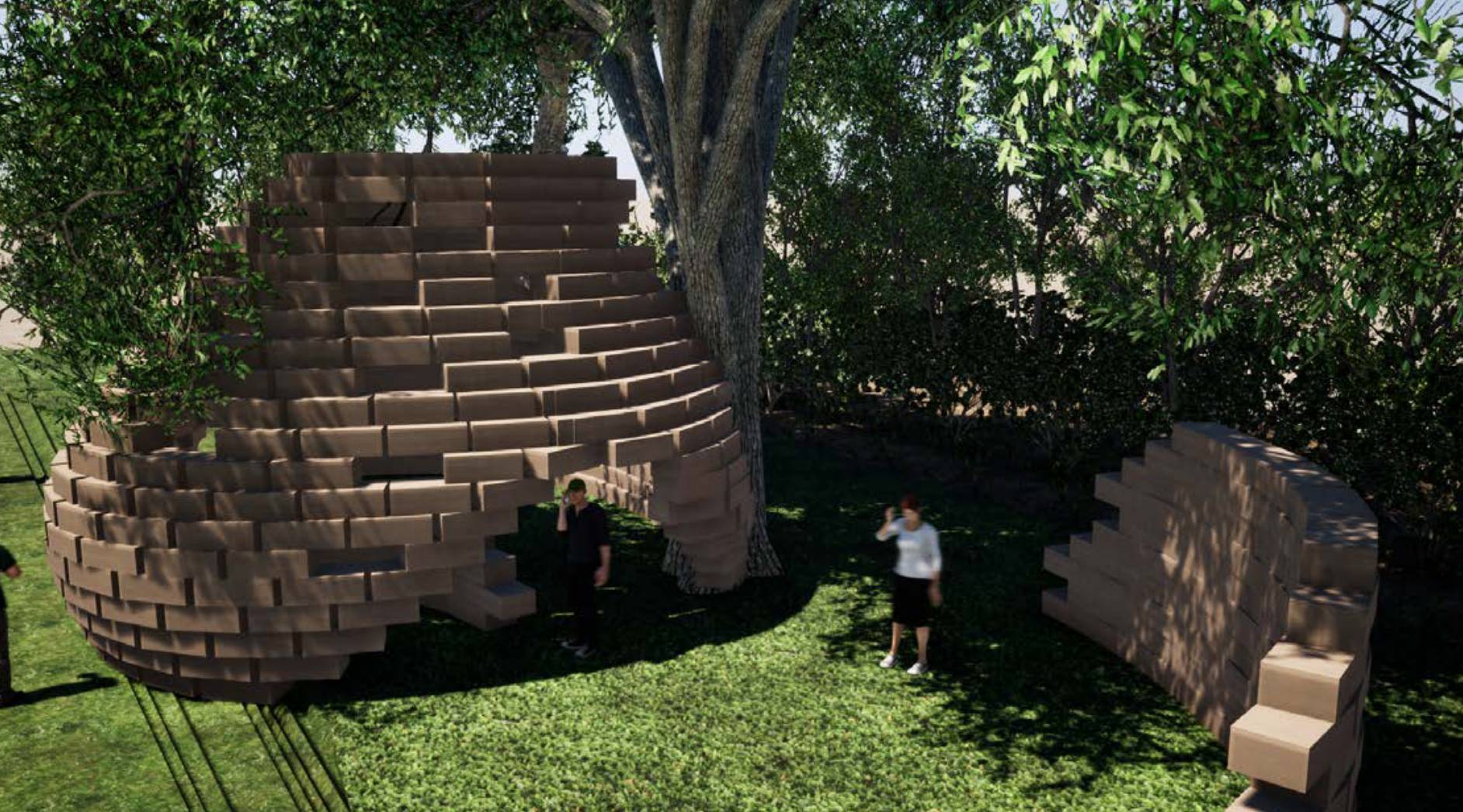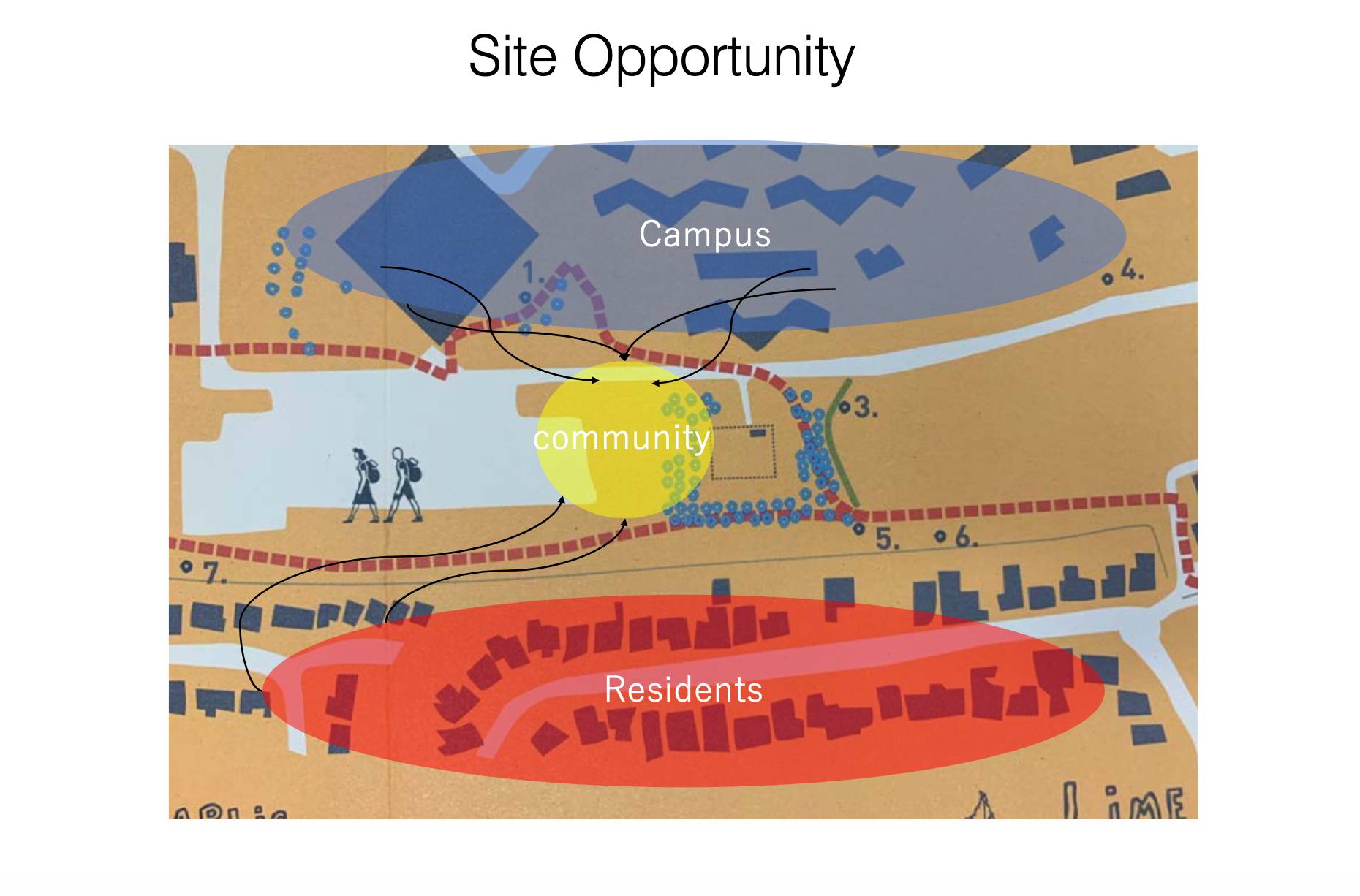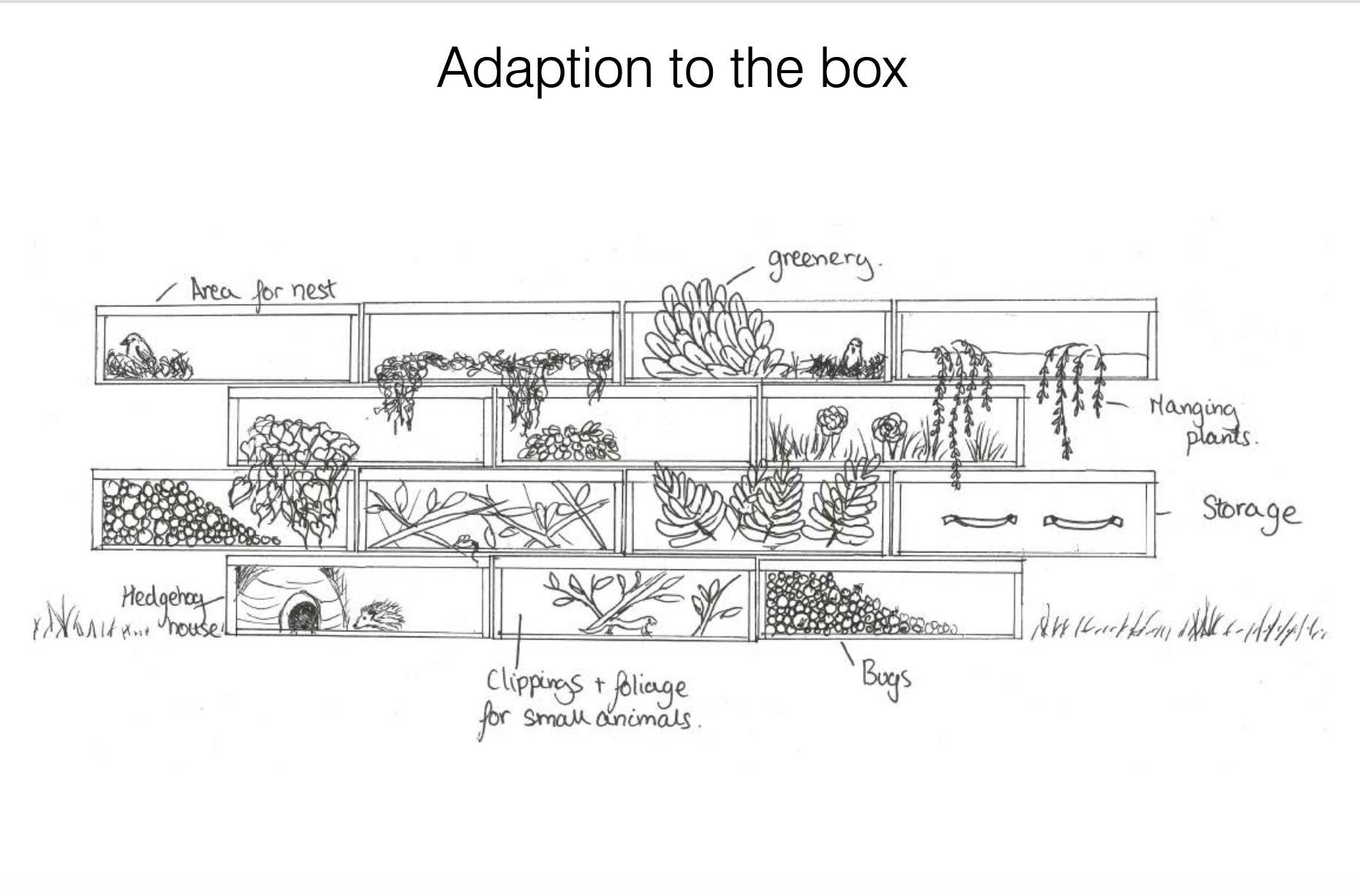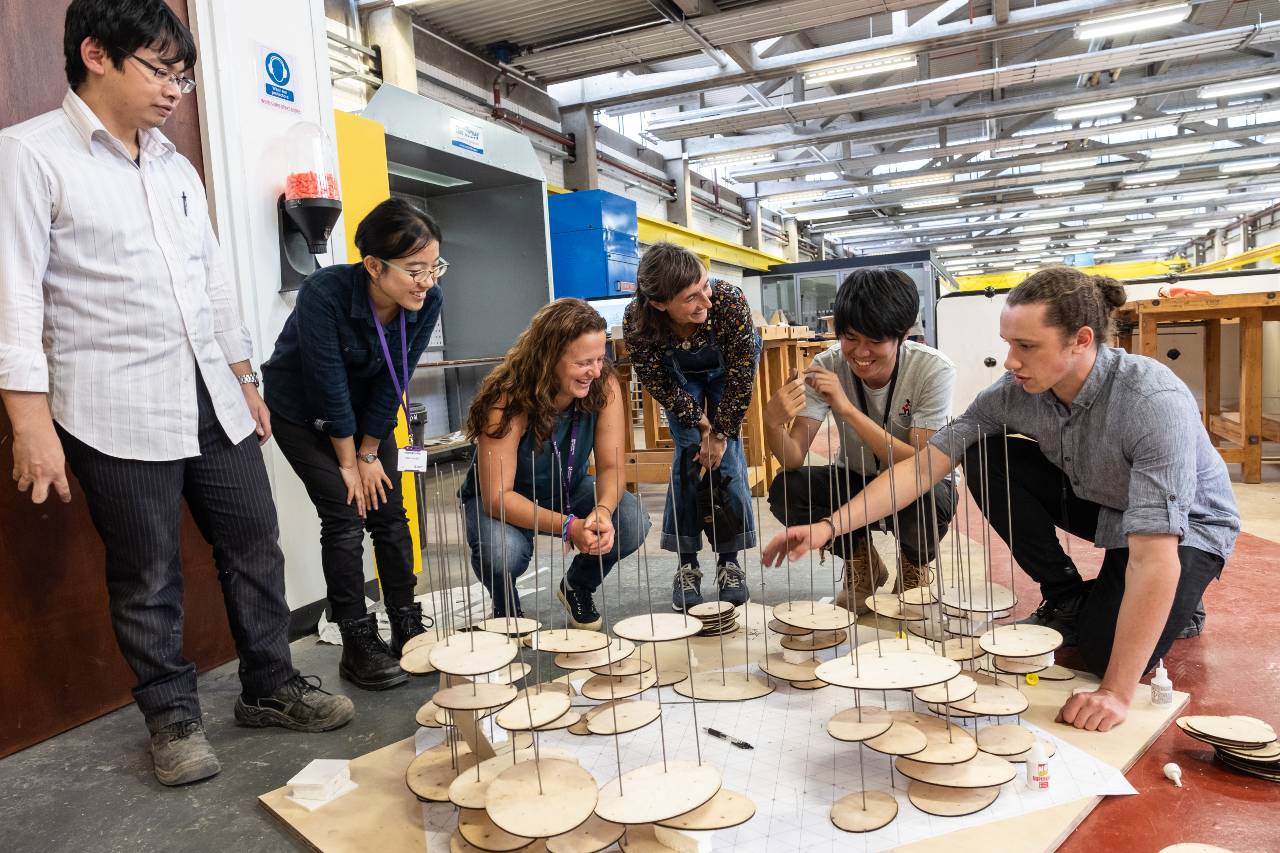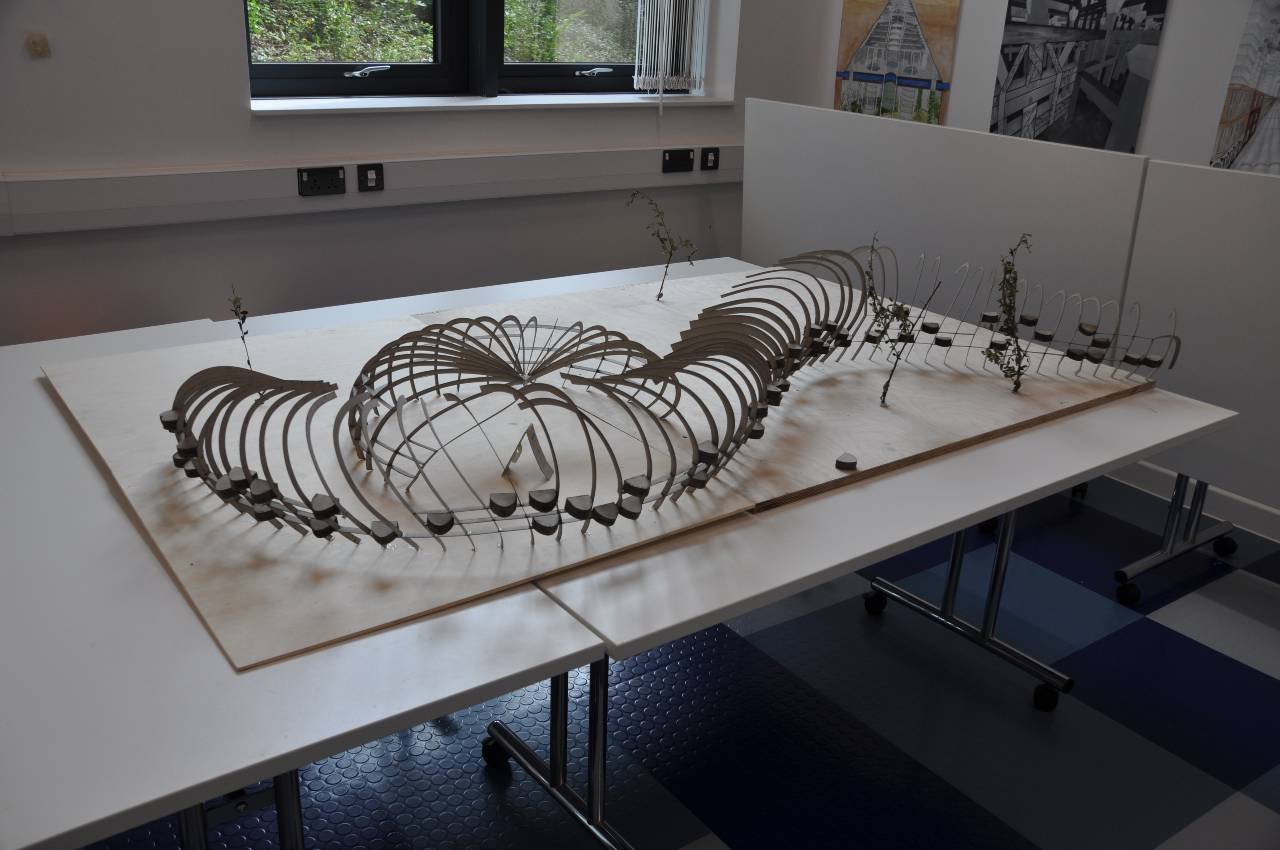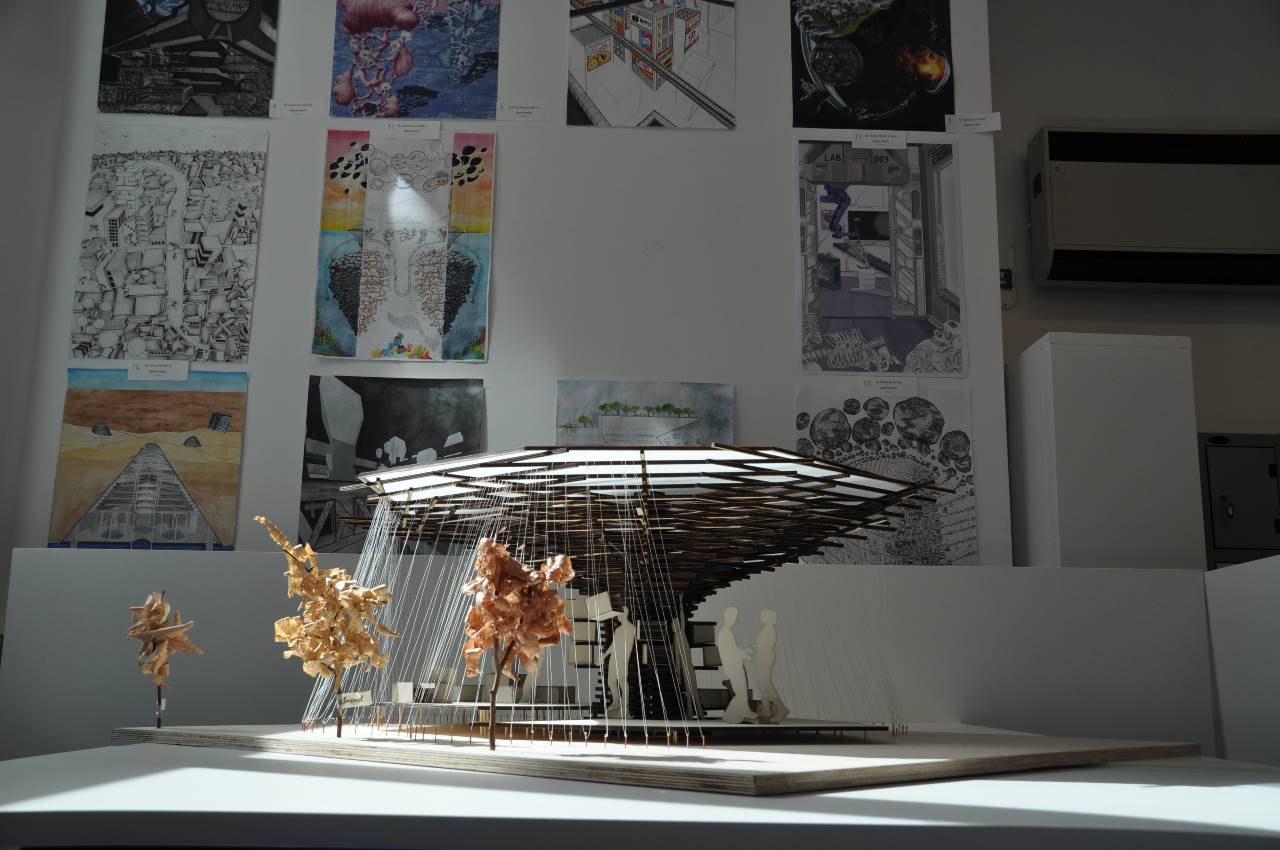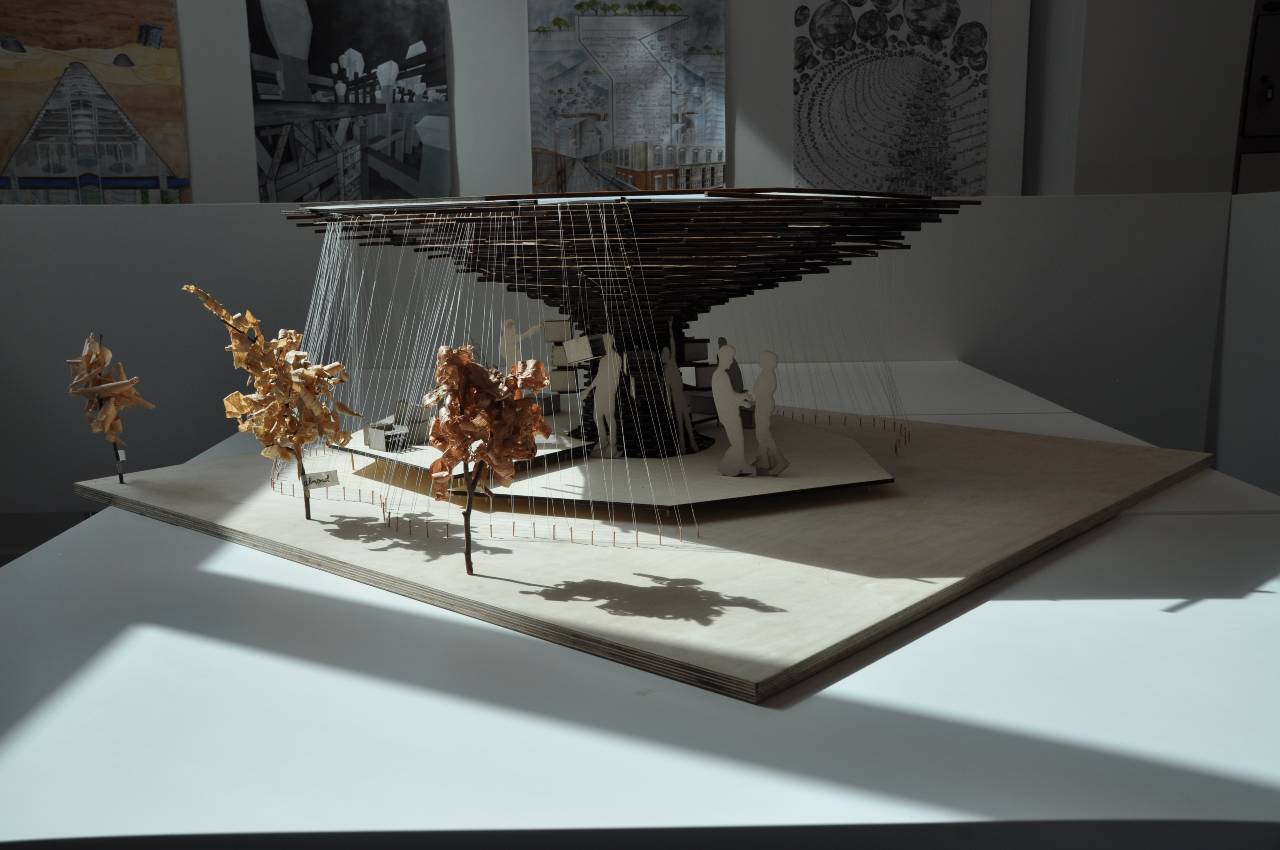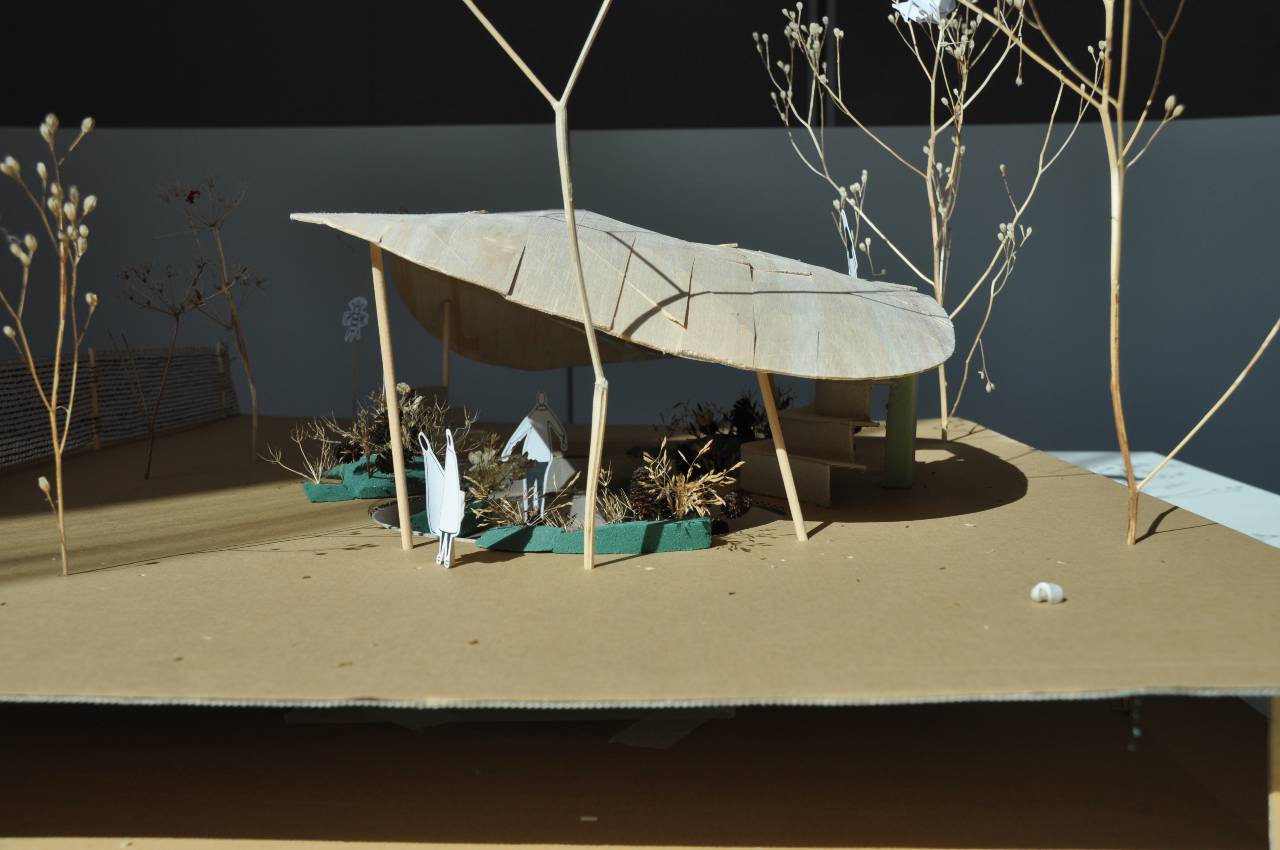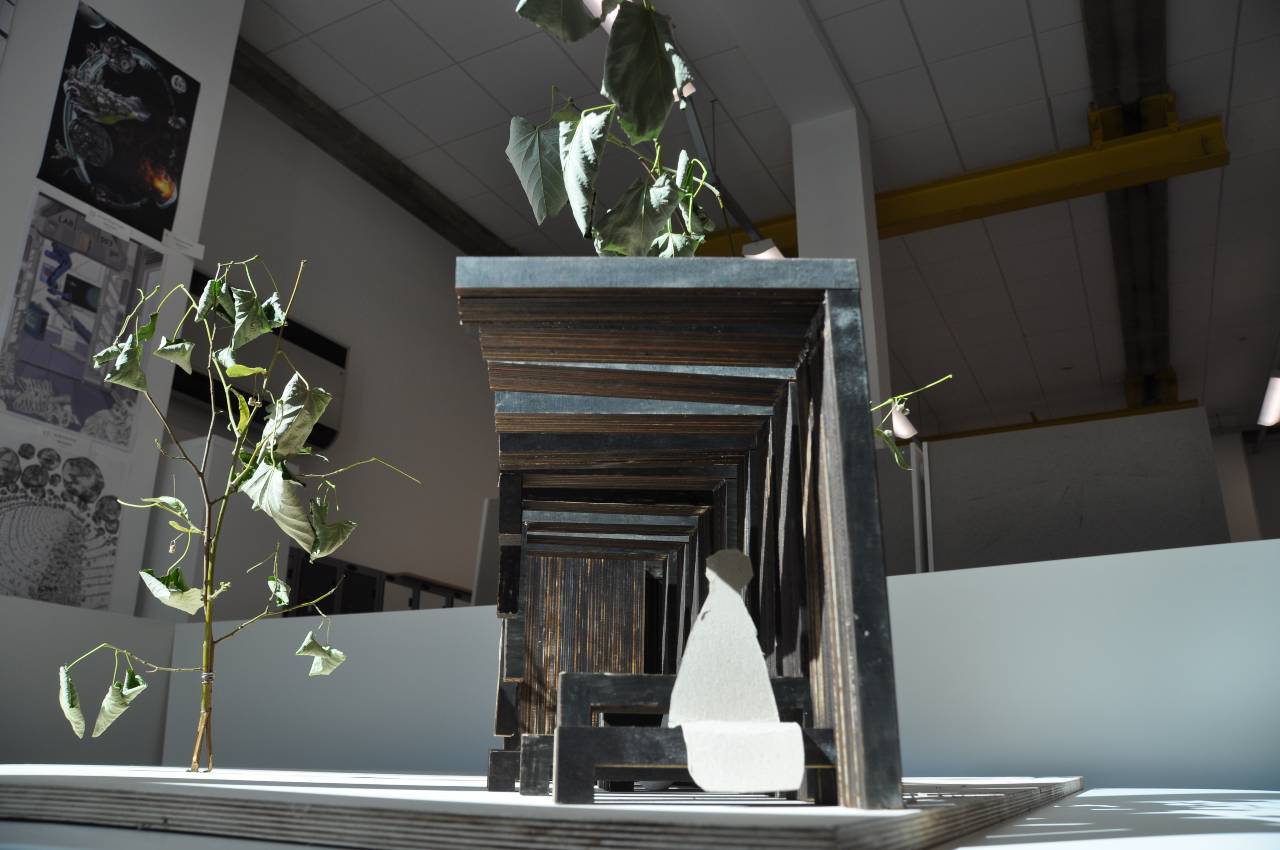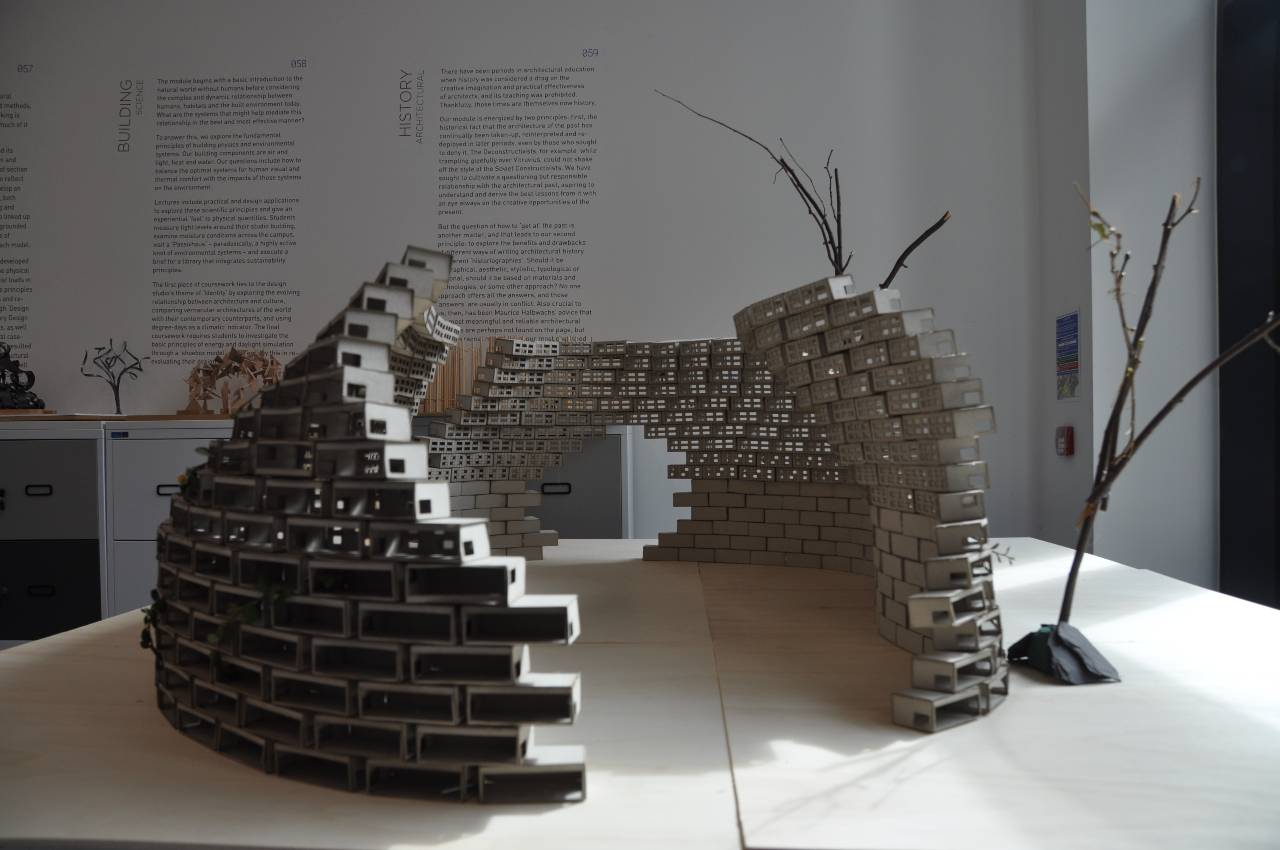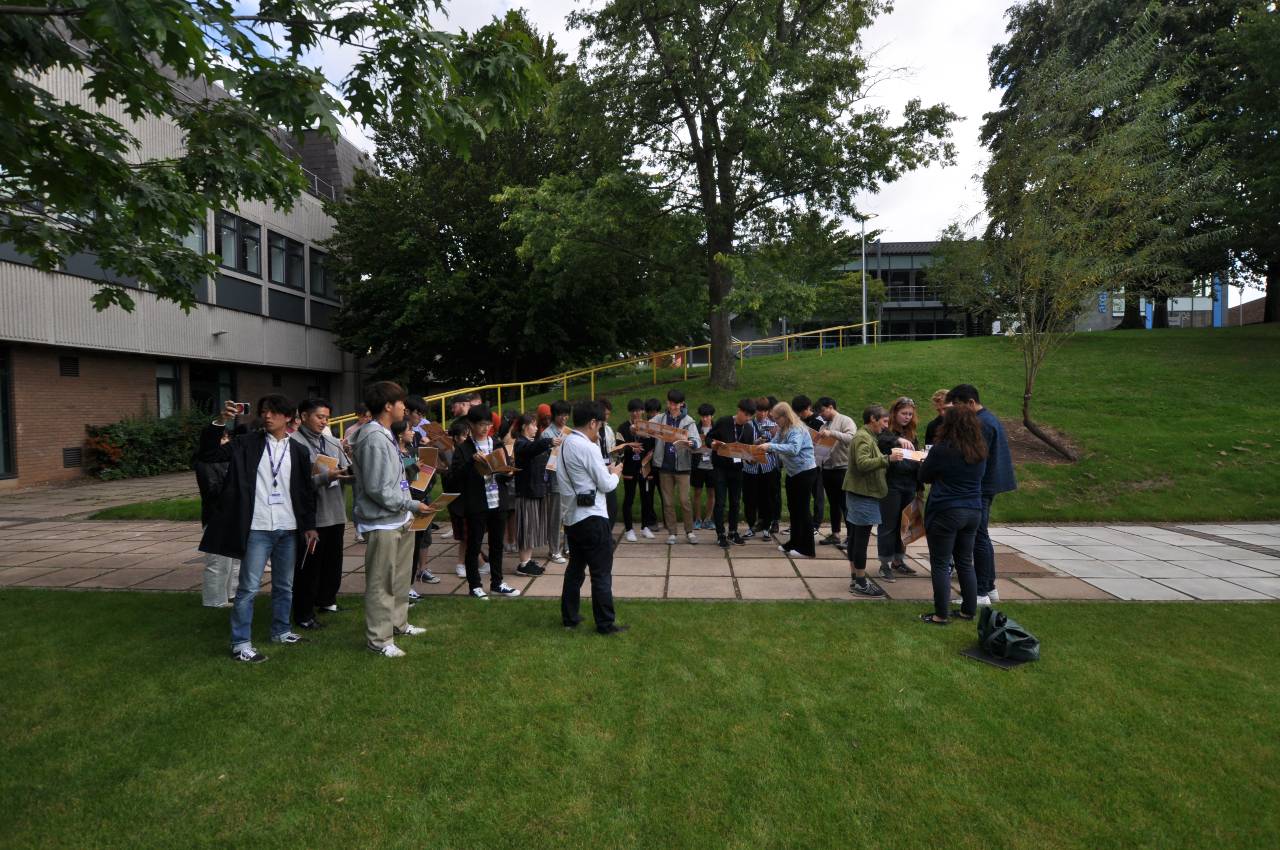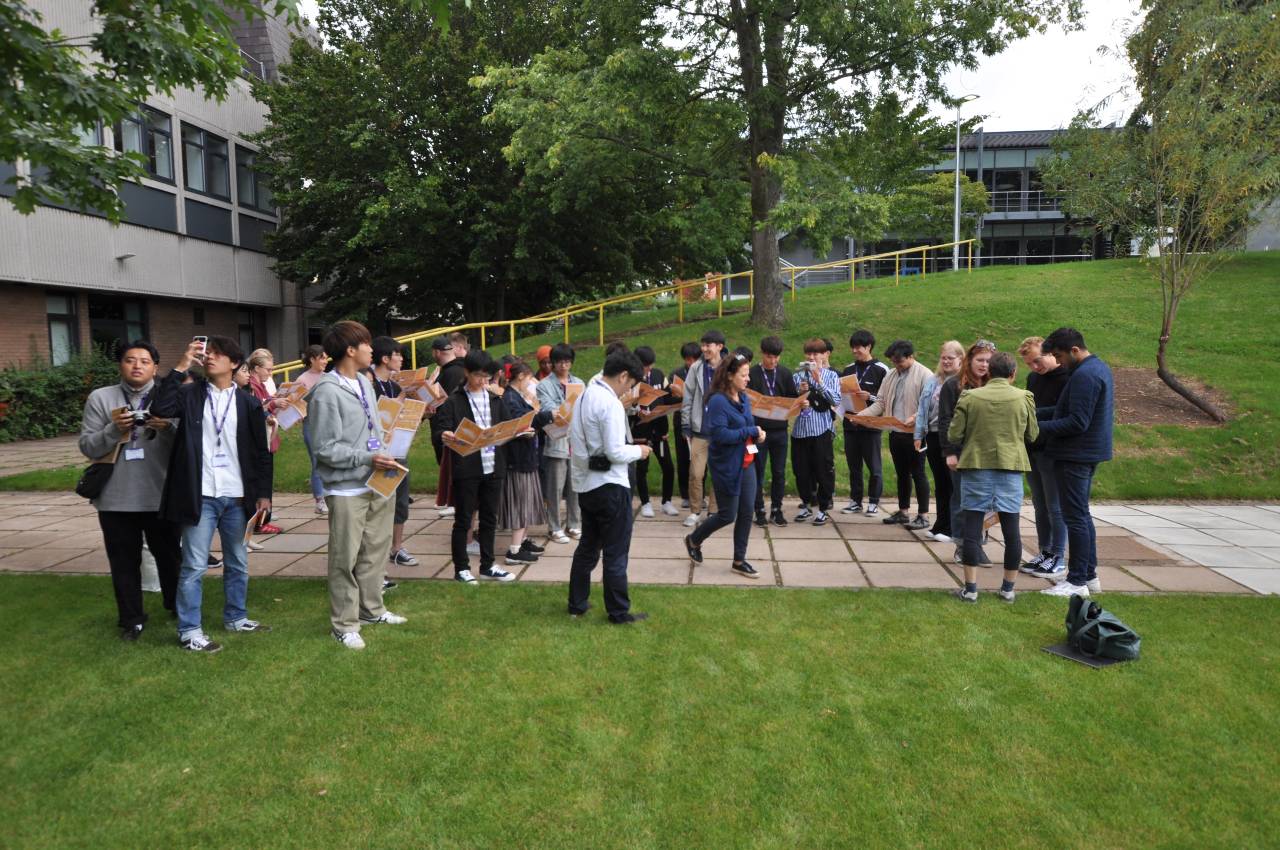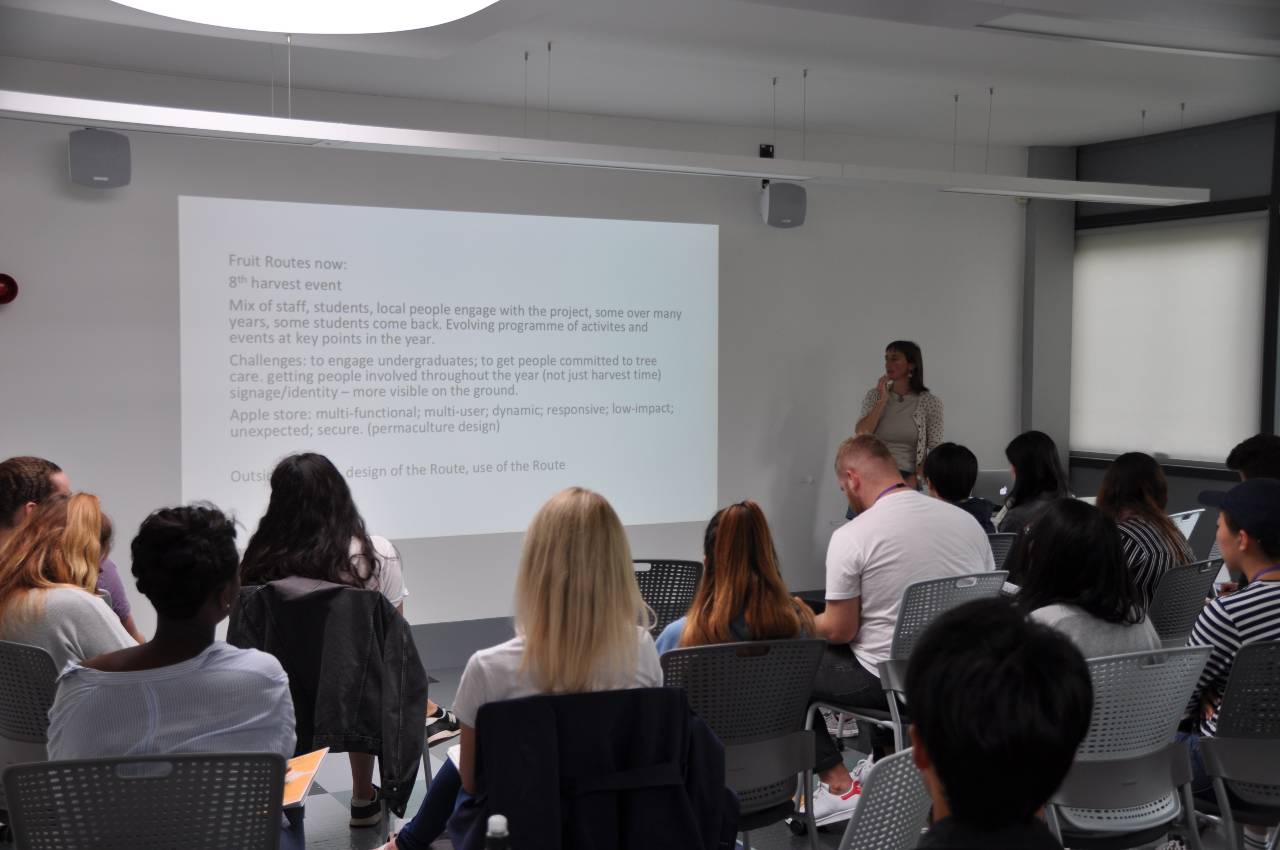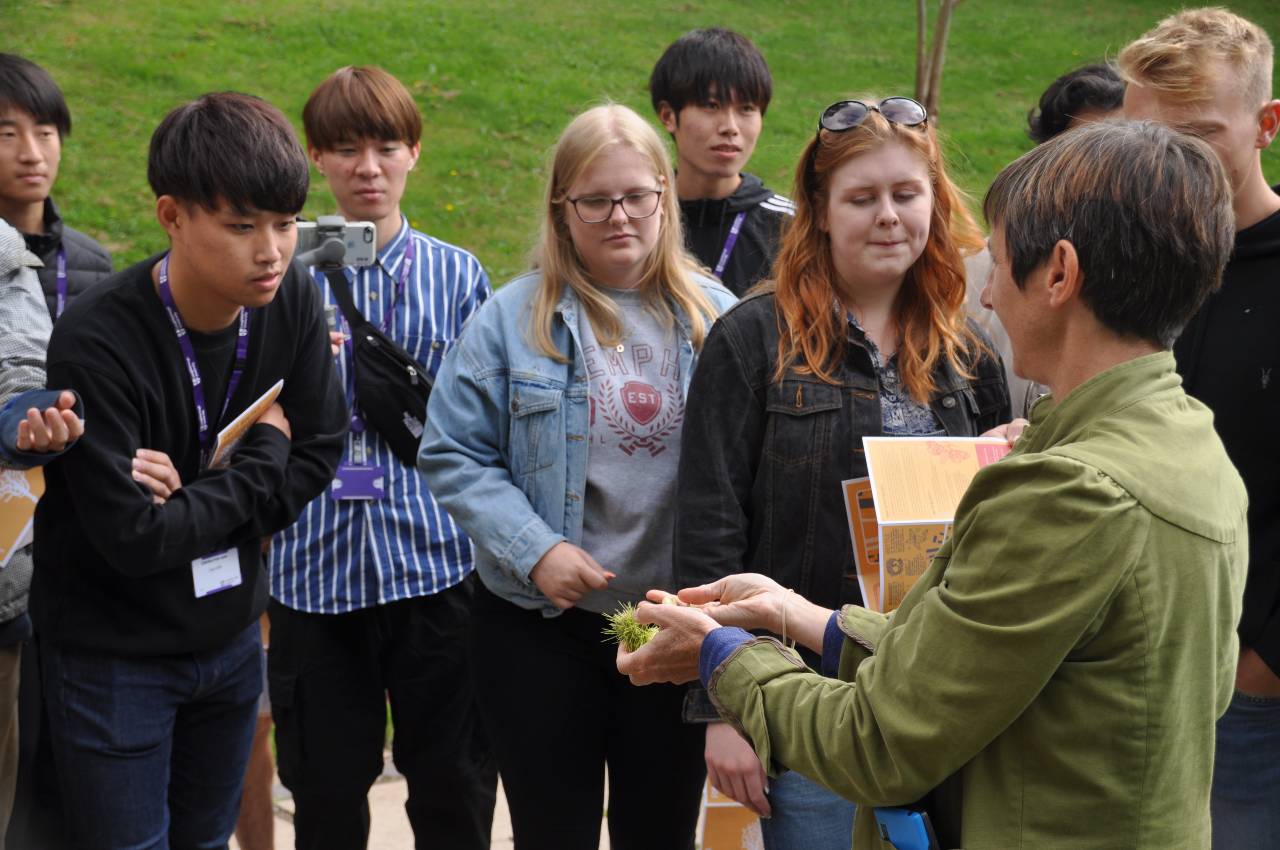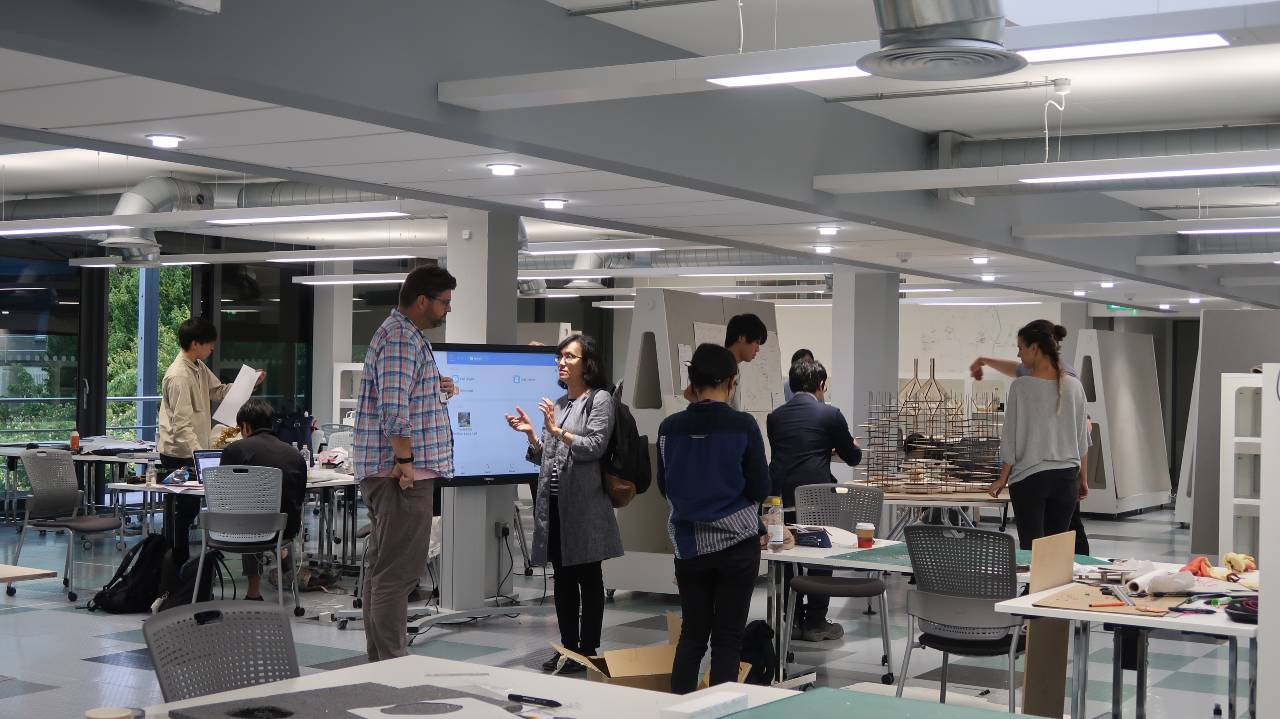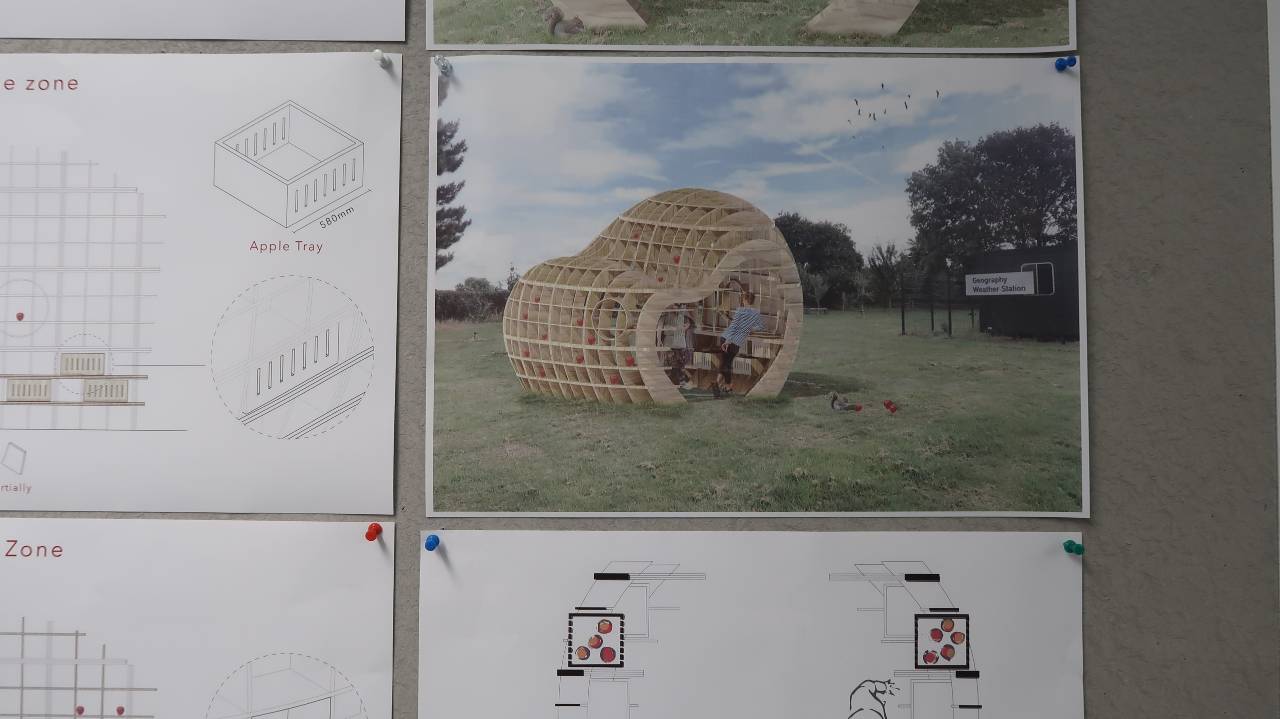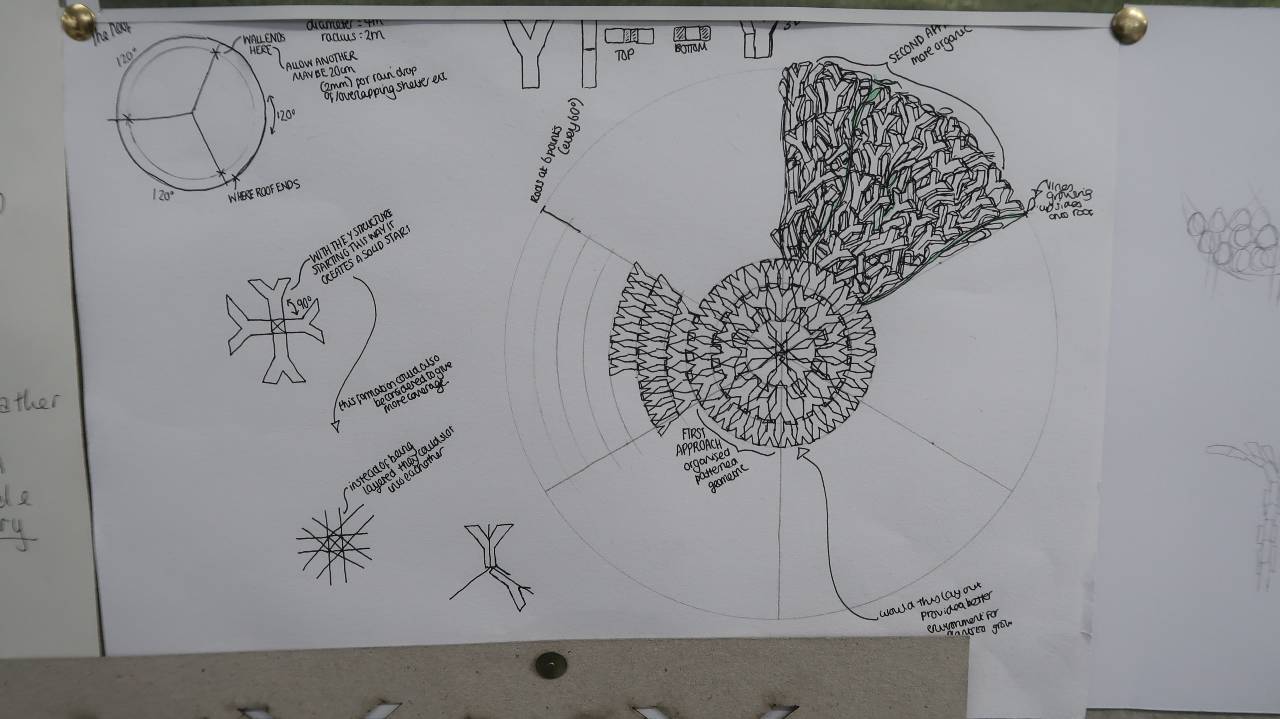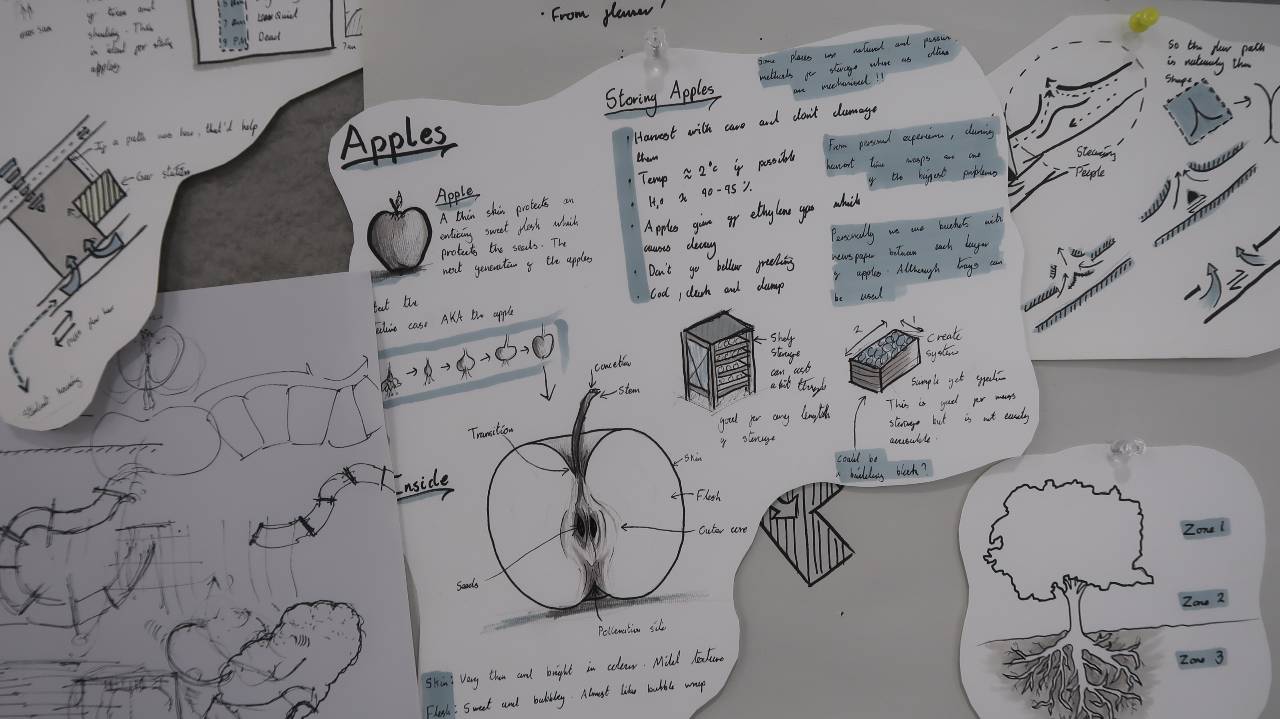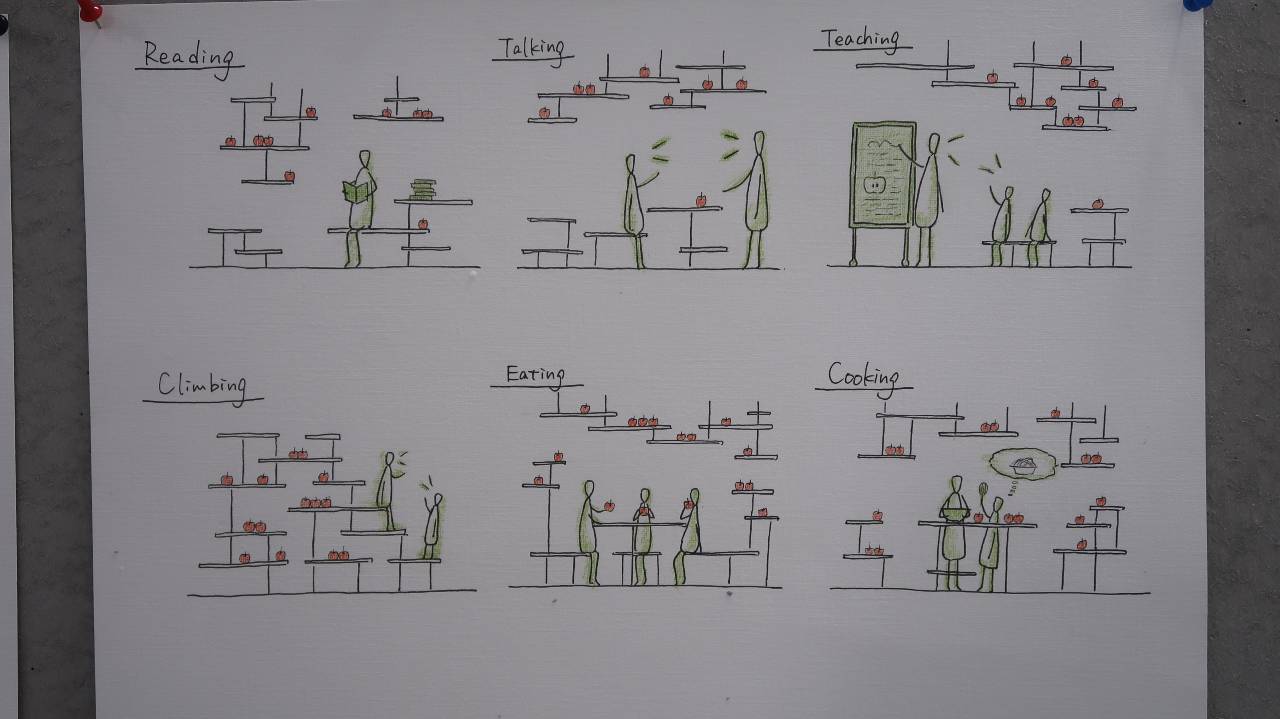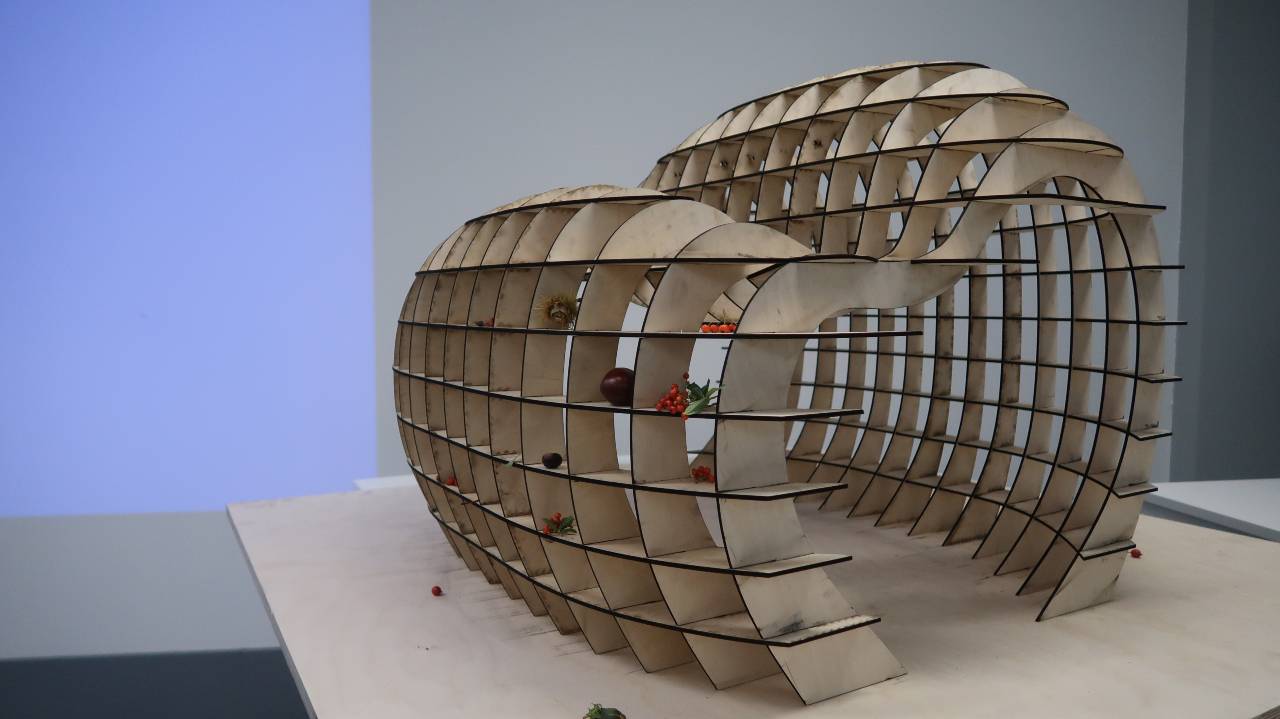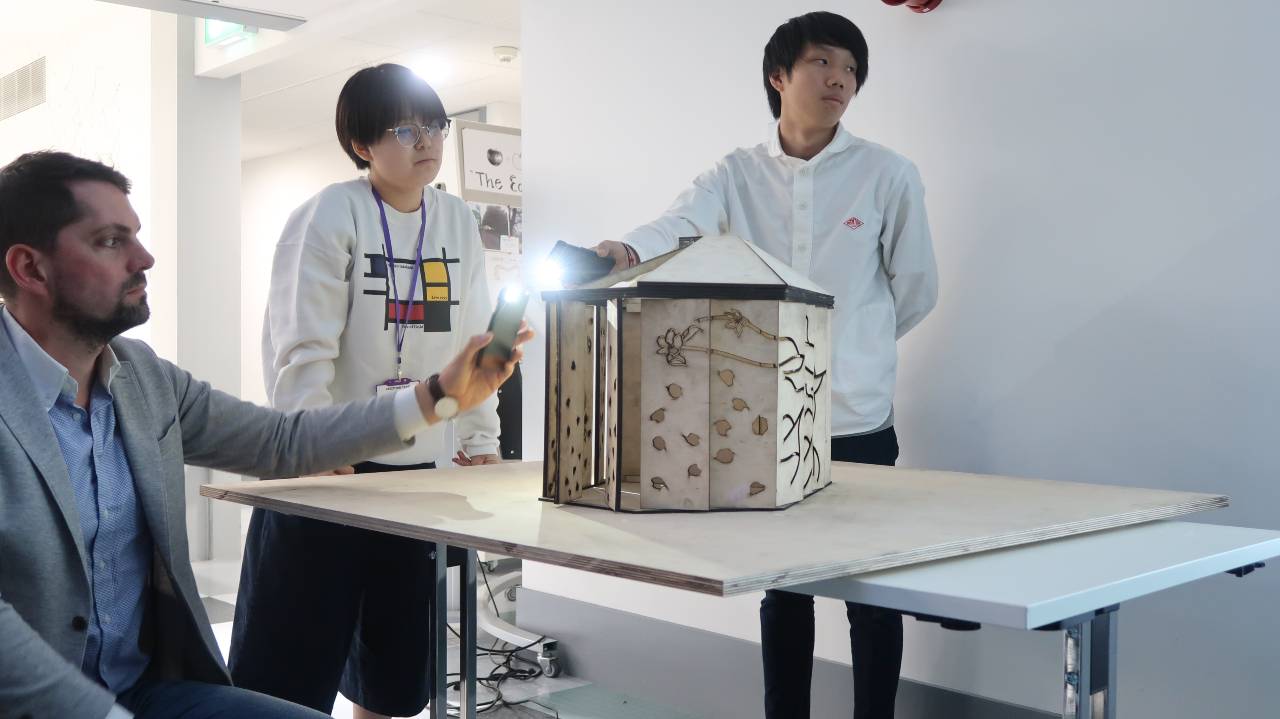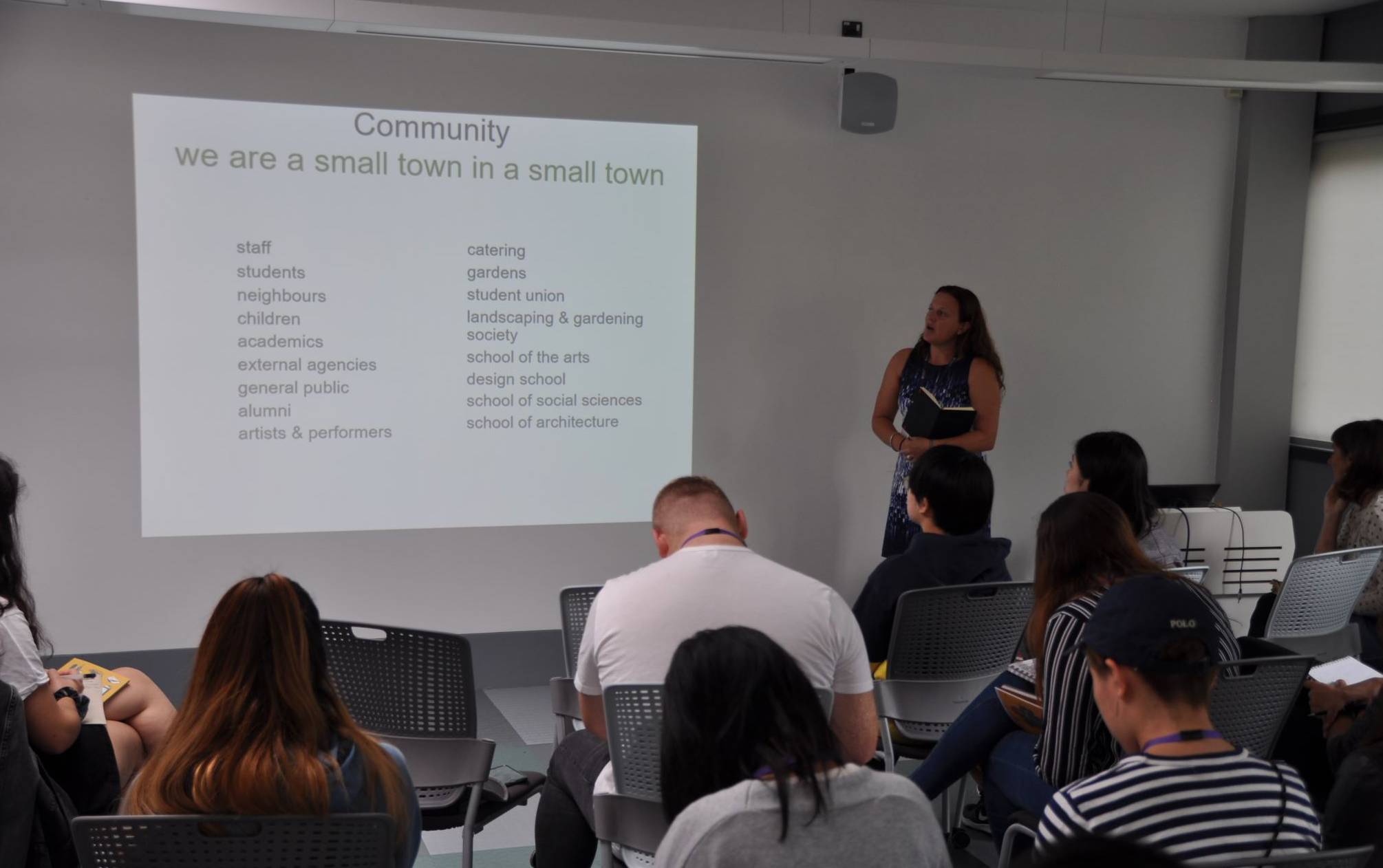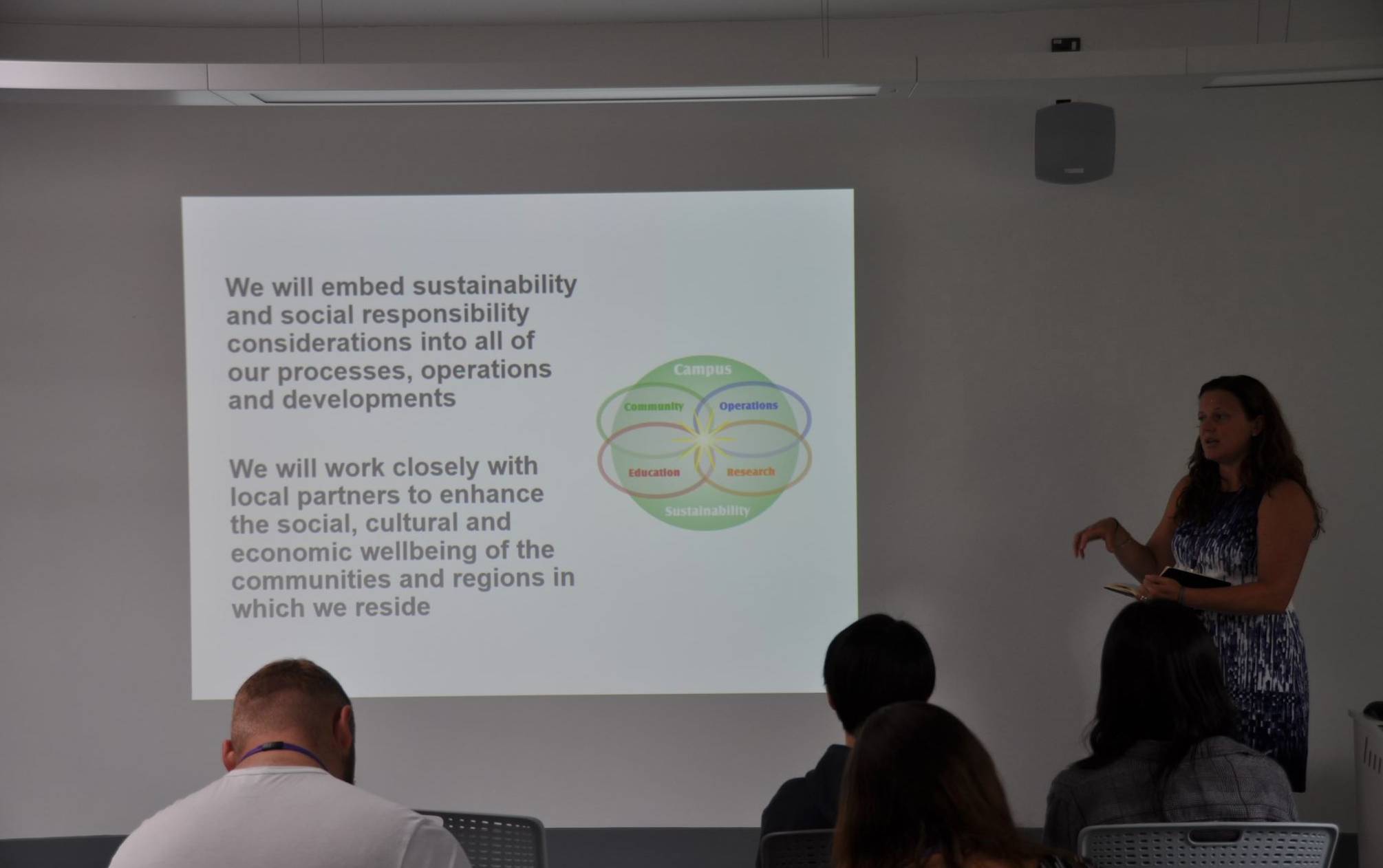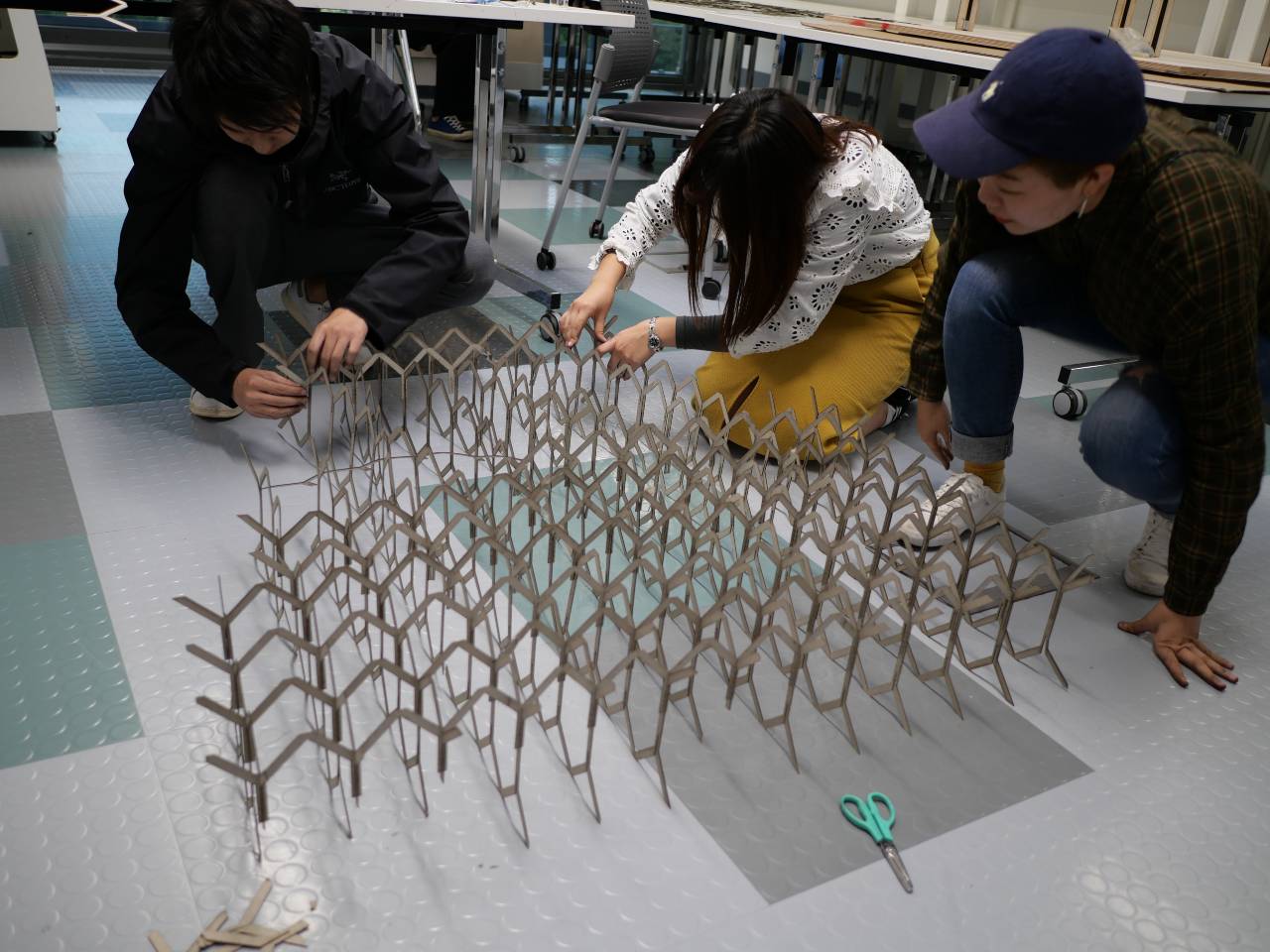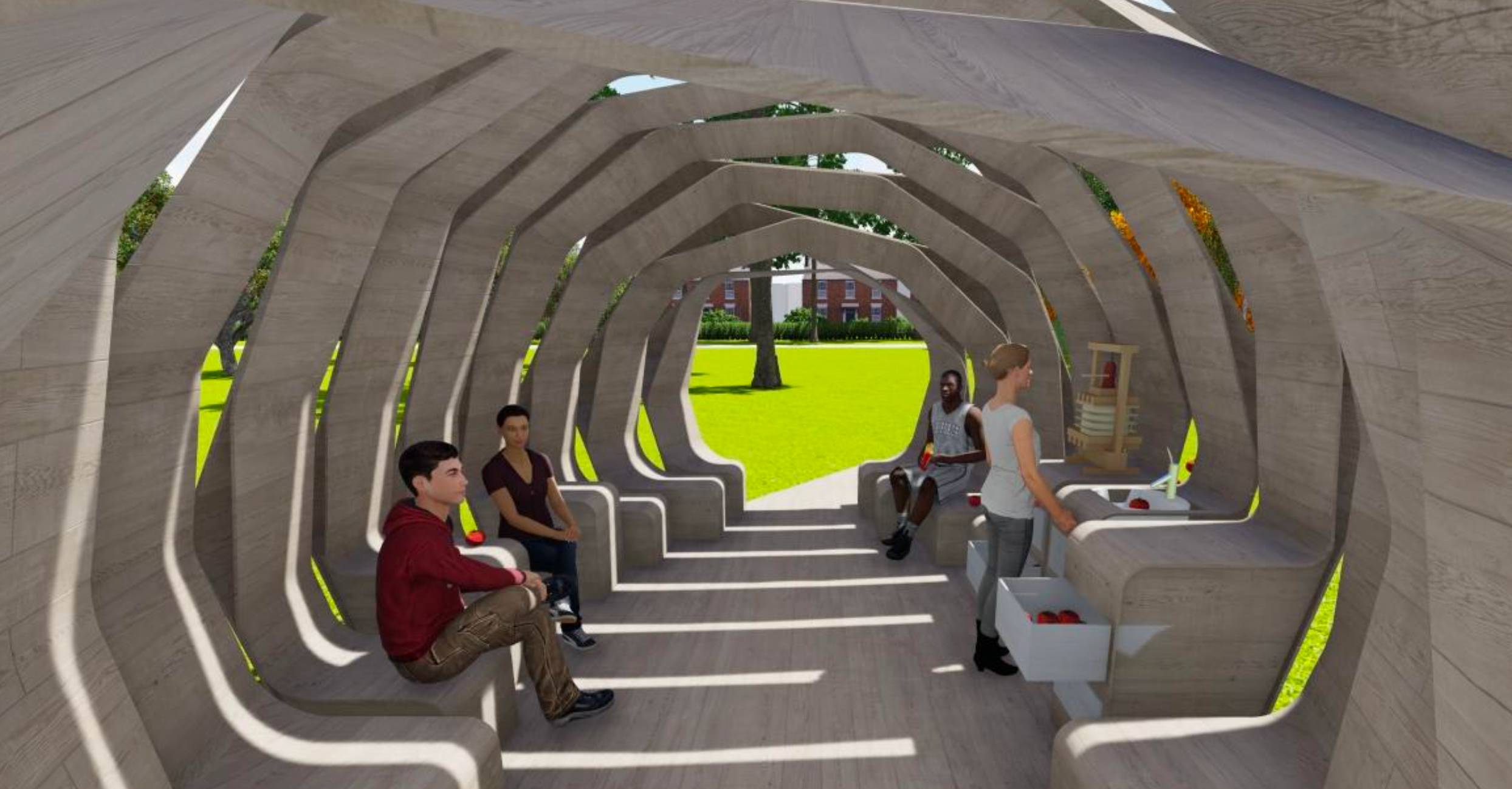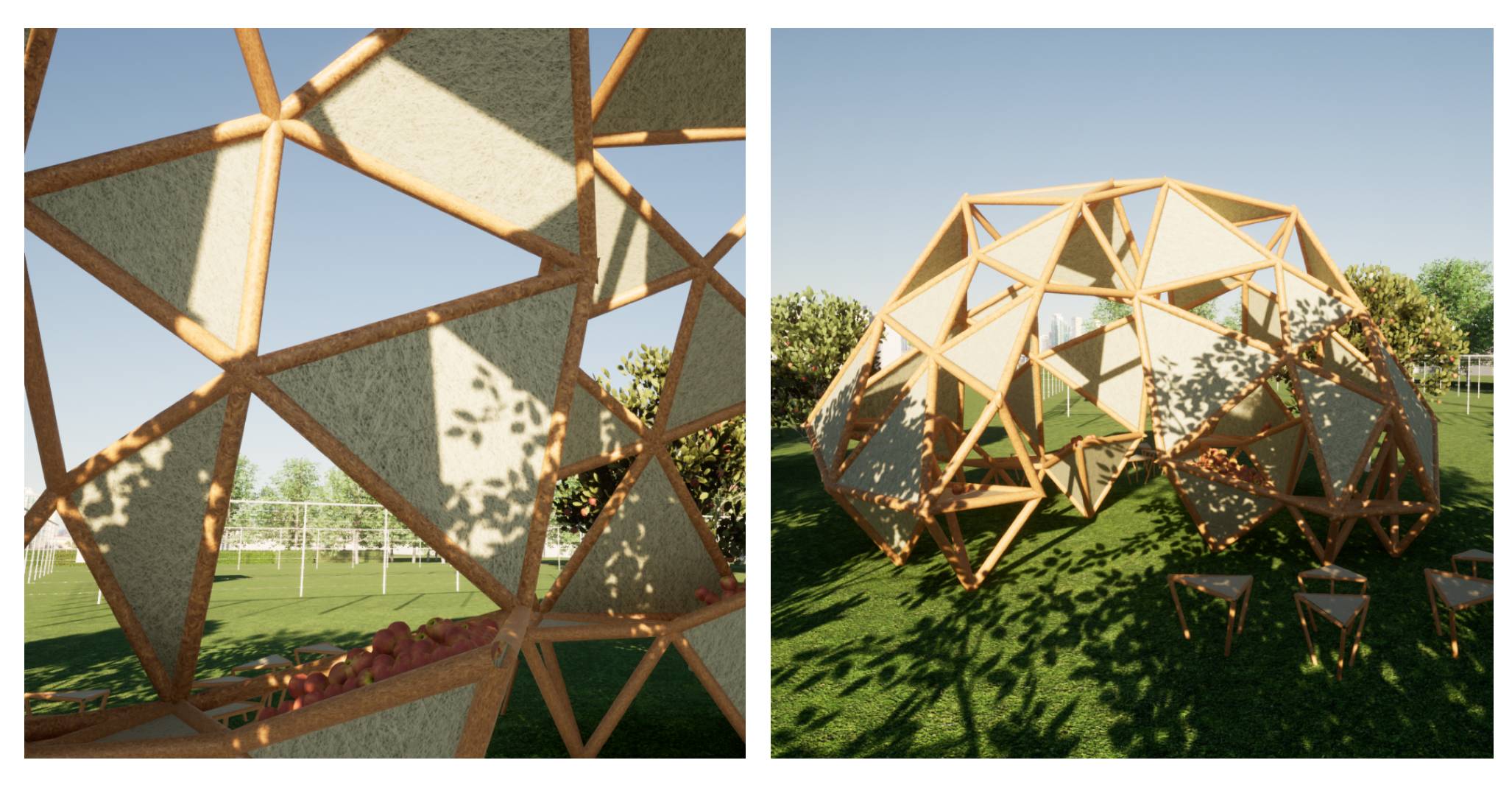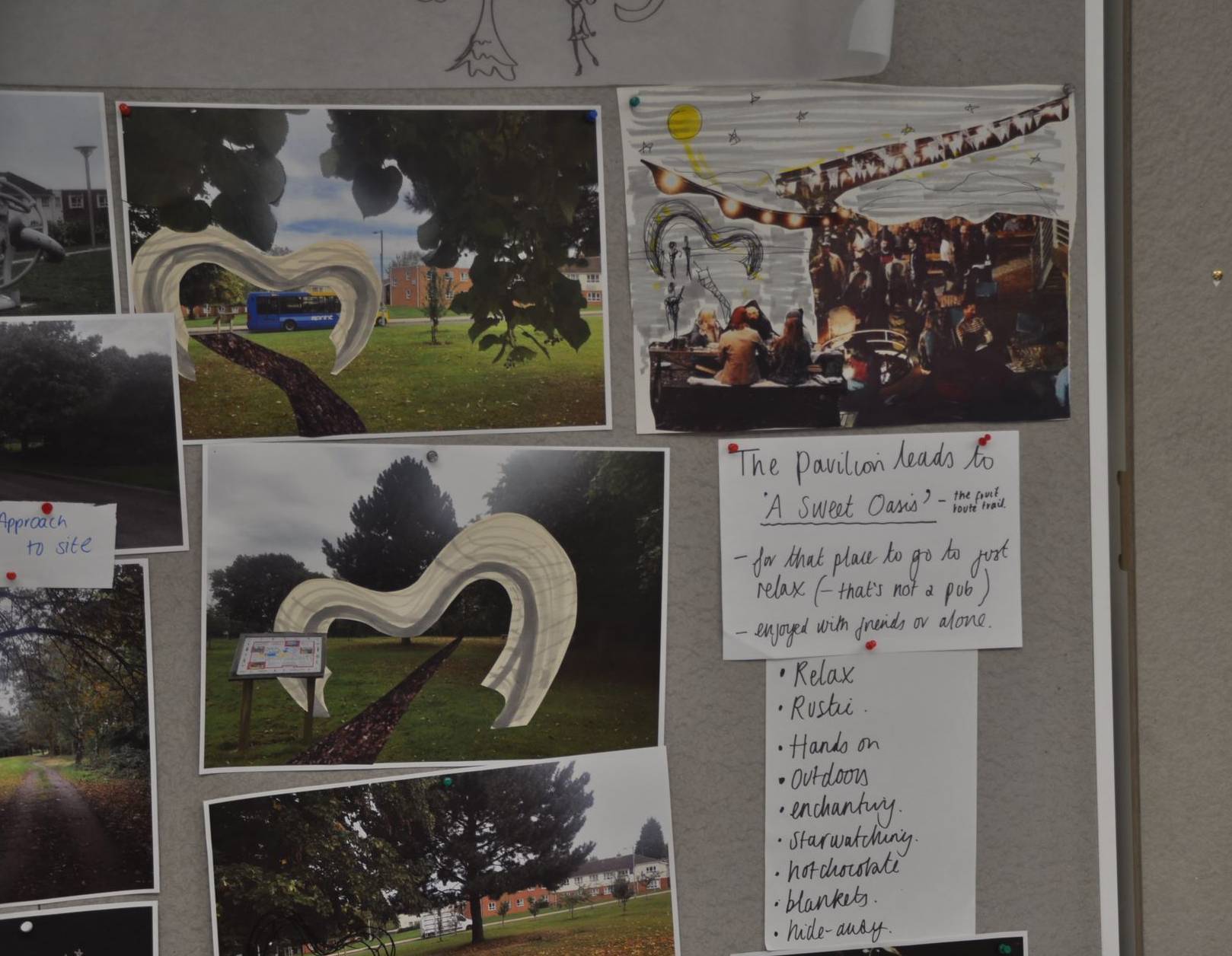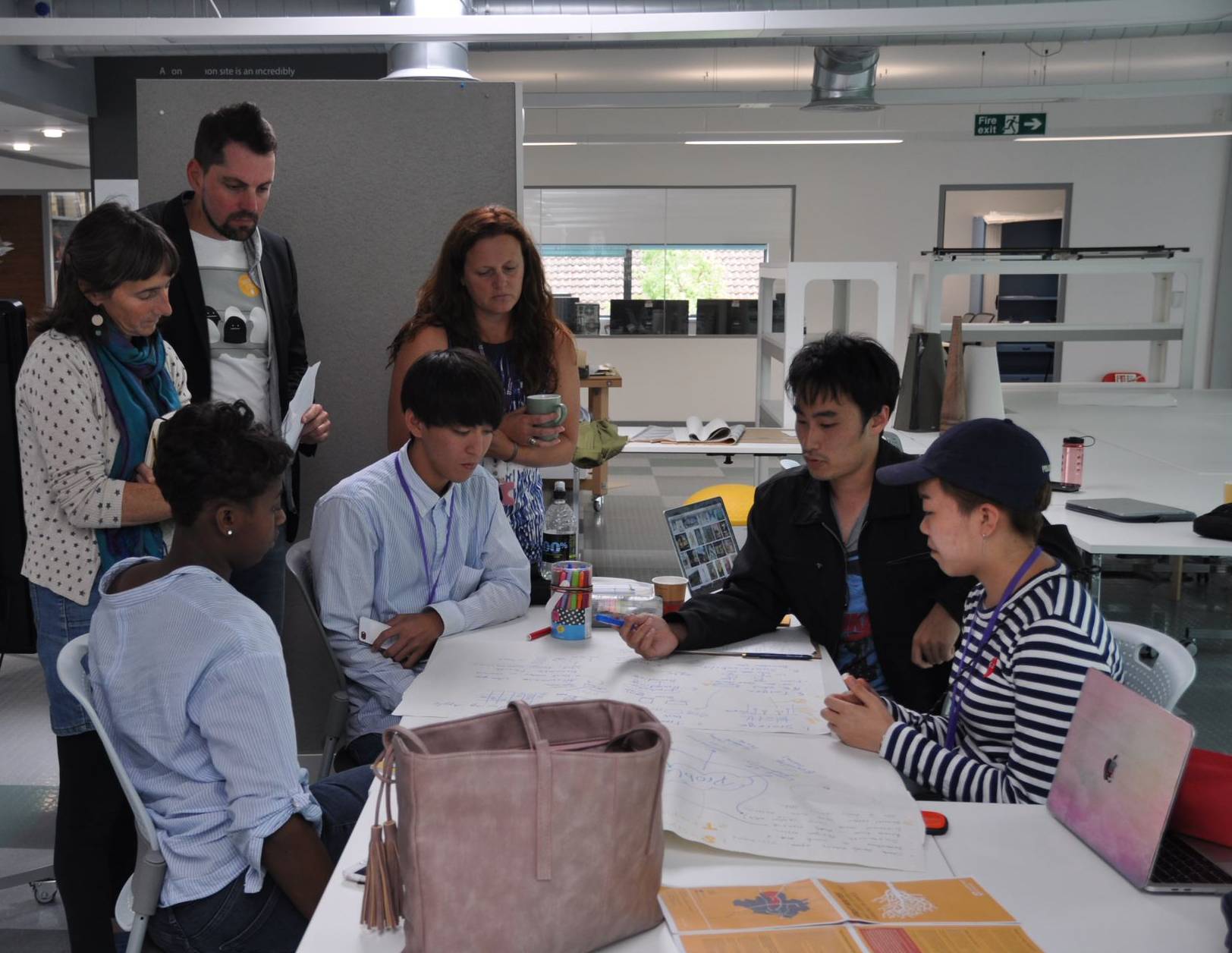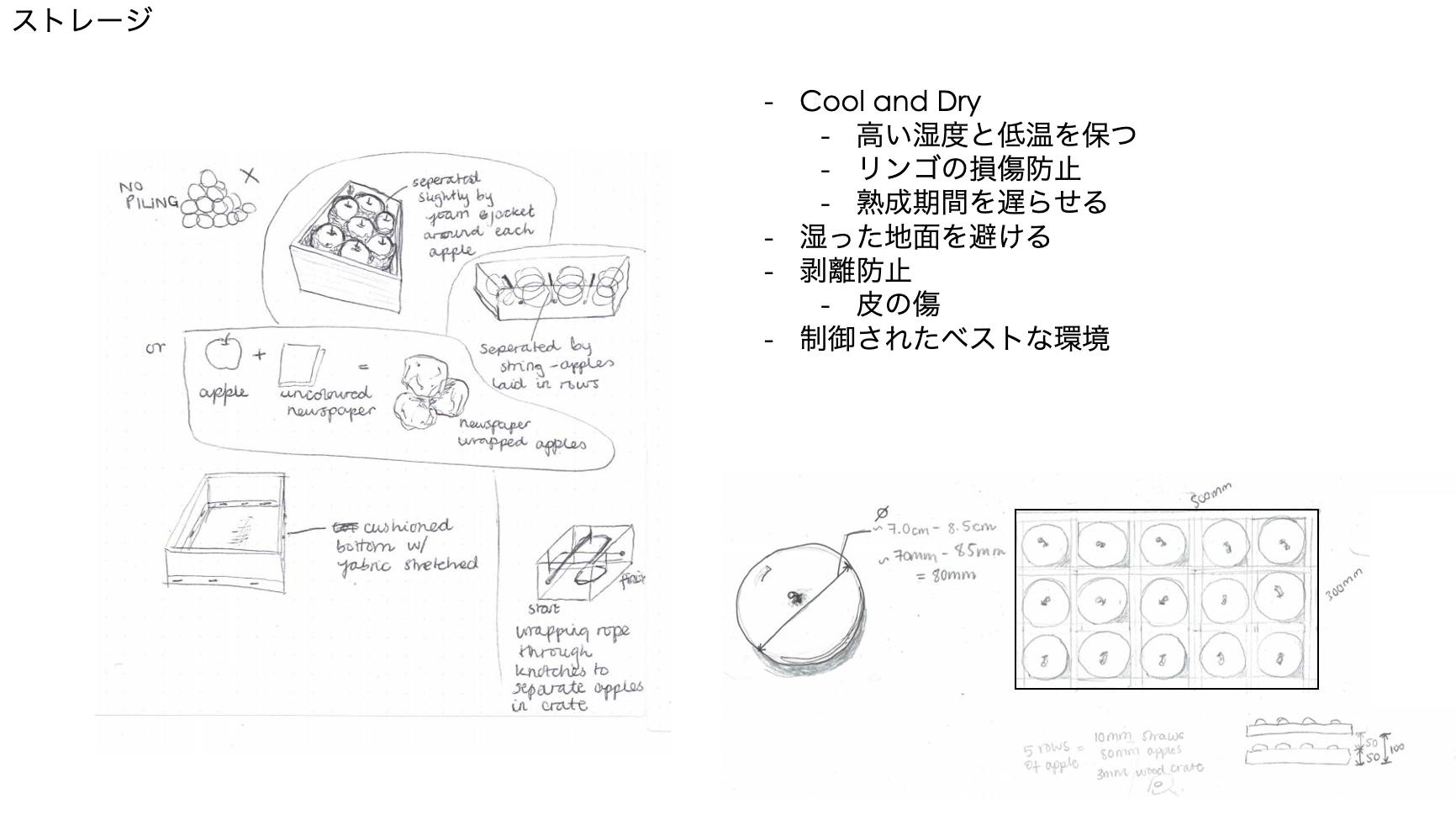Food & Wood started as a collaboration between LU-Arc (Architecture School of Loughborough University) and five universities in Japan in 2018. The first workshop was a design week held in the UK and focused on bringing together students from Japan and United Kingdom to design an apple store. This has evolved into a two-week workshop organised by Loughborough University and Hiroshima Institute of Technology in collaboration with Kyushu University, Kyoto University, Keio University and The University of Tokyo.
The workshop had two stages. The first part is a design week in Loughborough. Students from Japan and the UK work together in groups to develop proposals for an Apple Store for the harvest that takes place in Loughborough campus every year. The teams worked for a real client, Fruit Routes, and present their work to members of the local community who are part of Fruit Routes to finalise their design. In addition to the community aspects and the advantage of designing together with a real client, the students gain experience in computational design and digital fabrication, which supports their process in designing a building that can be prefabricated and assembled by students and the community.
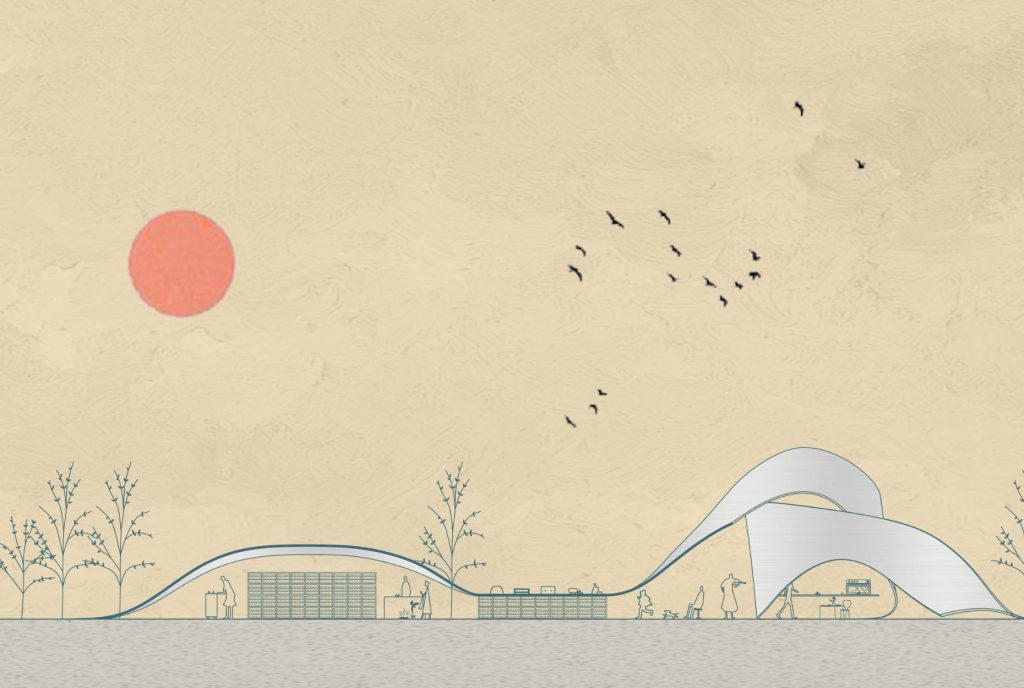
Sustainability and Tradition
The term Food + Wood refers to two important aspects of the workshop, each exploring a different element of sustainability.
The first refers to the function of Apple Store, which links the project with Fruit Routes and the community in Loughborough. The Food + Wood brief was created by Jo Shields and Anne-Marie Culhane and the week starts with a tour around Fruit Routes and presentations about the arts and cultural and sustainability aspects of the project.
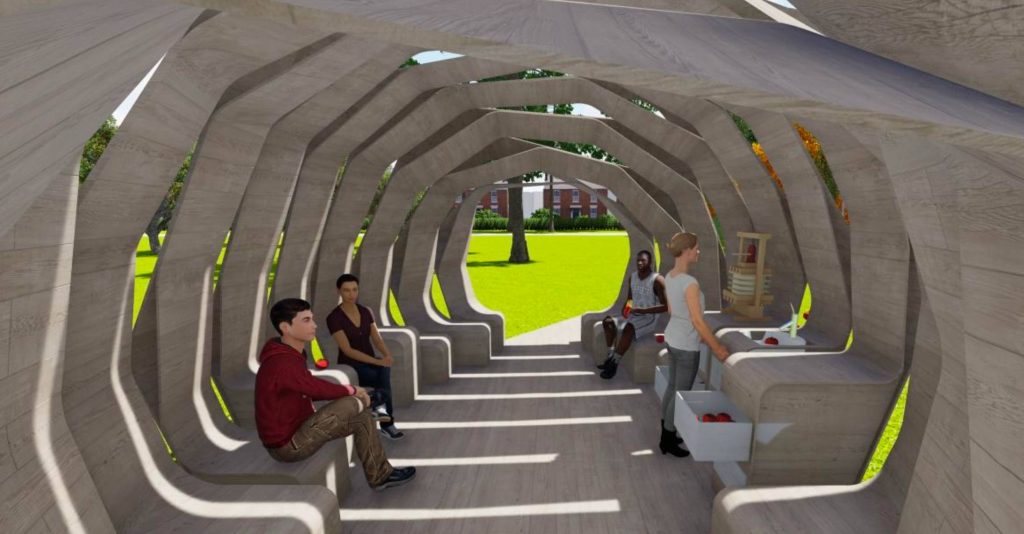
The building is meant to be much more than just a store for apples, it is a meeting point for both people on campus and the surrounding neighbourhood. It is meant to become a place that brings people together and becomes the scene for various activities of Fruit Routes. Members of the community are key elements in the process and are invited to reviews during the Summer School, in addition to members of Fruit Routes. This gives our students a valuable opportunity to pitch their ideas to their ‘Clients’ and gain valuable experience in the process, something that they would not normally gain during standard Design Studio experience.
The second aspect of Wood refers to the ‘hardware’ of sustainability, specifically to materiality and construction. During the Summer School, the students learn from various benefits of timber structures and importance of sustainable construction. Their proposal addresses key points of a project: going beyond materiality, assembly, cost efficiency and buildability of their project. The experience offers them insight in sustainability and the importance of low carbon thinking in design. Students are also expected to consider the impact on biodiversity of their proposal and how their design might enhance and improve it. They are encouraged to seek ways to make their design immersive in the environment in which it will be placed and to find innovative ways to add to the potential habitat for wildlife as part of the project.
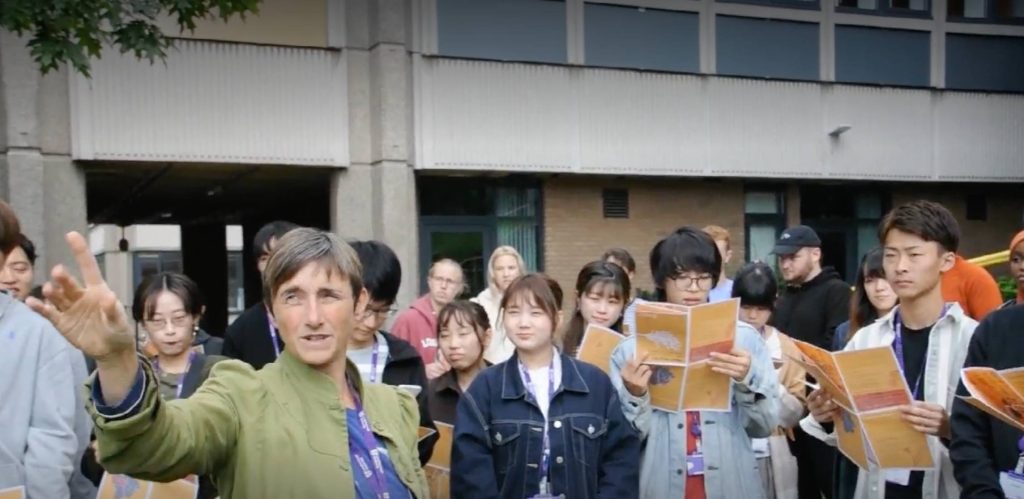
“The Apple Store (AS) at the Barefoot Orchard (BO) is based on a dynamic exchange of creative ideas and energies between university folk and people from Loughborough and beyond. The Fruit Routes ethos of abundance, the give and take between nature and people, has taken material expression through the idea of the AS which will be a functional and aesthetically interesting space across all seasons. A meeting place for folk to come together to pick and store fruit, to take shelter and share, not just the produce of the Fruit Routes, but companionship, appreciation, and a caring for each other and nature. Precious gifts and a lasting legacy for all who stop at the AS as they pass by the orchard, along the FR”. Steven King, local resident & Transition Loughborough
Finally, there is a third aspect that brings these two together: Japanese and British culture of timber construction. During the Summer School, the students work together to use computational design and digital fabrication to develop traditional British and Japanese timber construction into contemporary context. Inspired by traditional methods of joints and assembly, they design a pavilion that utilizes these traditional solutions with modern technology and fabricate them with advanced manufacturing techniques. The experiments end in a final pavilion design that is built each year in Hiroshima in full scale.
In addition to the experience of constructing a small pavilion, the students got the opportunity of visiting Japan.*
The second Food + Wood Summer School in 2019/2020 was the first time that the winning group’s proposal was built in Hiroshima. We were also able to have more community involvement, which meant that members of Fruit Routes and the local community were able to come on and offer feedback on the projects from the first day. This meant that we were able to take steps further towards a community-involved design. Seeing the engagement of students and community was one of the most rewarding elements of the design week in Loughborough, which offered an experience that is rarely offered by standard architecture school curriculum.
The selected project in 2019/20 was titled “The Core”. The building utilised a stacked timber structural system, which invoked the shape of a tree. The core of the tree was used for storage space to store the apples of the harvest. The building recognises the advantage of cold climate and that the time of the year is ideal for apple storage. The structure worked as an open space for the community throughout the year. The building envelope is made by parallel strings running around the perimeter. This solution supports ventilation, reinforces the structure and can be easily removed during events.
The Food + Wood Summer School was a finalist in the Green Gown Awards for Benefitting Society category and was awarded a Highly Commended in the 2019 AUDE Reaching Higher Award for the innovative teaching aspects.
The Summer School project would have been impossible without the invaluable support of colleagues including Ana Ilic and her expertise in design technology and colleagues in Japan: Darko Radovic from Keio University, Yosuke Komiyama from Kyoto University, Toshiki Hirano from The University of Tokyo, Tomo Inoue and Masaaki Iwamoto from Kyushu University.
The Summer School continues as a collaboration between Fruit Routes and the School of Architecure. Organisers of Food + Wood Summer School:So Sugita (HIT) and Matyas Gutai (LU-ARC). The Summer School is supported by Daiwa Foundation and Sasakawa Foundation.
Collaboration
The Food & Wood Summer School would be impossible without the support and collaboration of colleagues in Japan and the UK: Tomo Inoue (Kyushu University), Masaki Iwamoto (Kyushu University), Yosuke Komiyama (Kyoto University), So Sugita (Hiroshima Institute of Technology), Toshiki Hirano (University of Tokyo), Maria Larsson (University of Tokyo) and Matyas Gutai (Loughborough University) Jo Shields (ex Sustainability Lead, Loughborough University) and Anne-Marie Culhane artist and designer of Fruit Routes.
